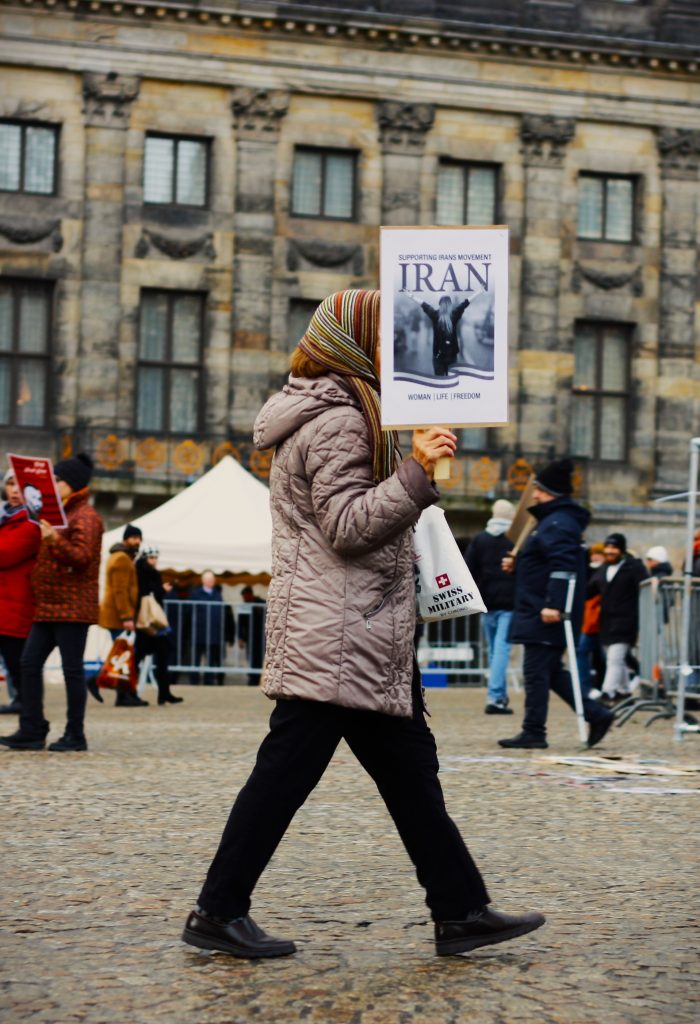
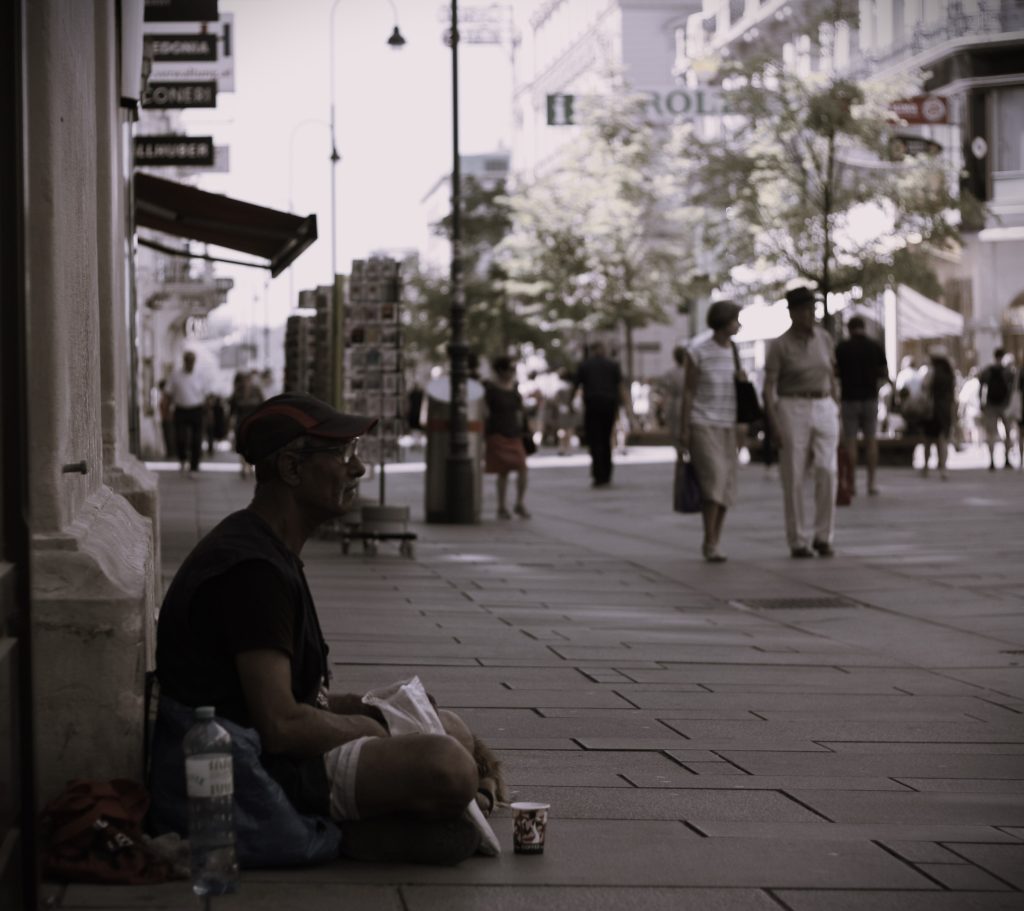
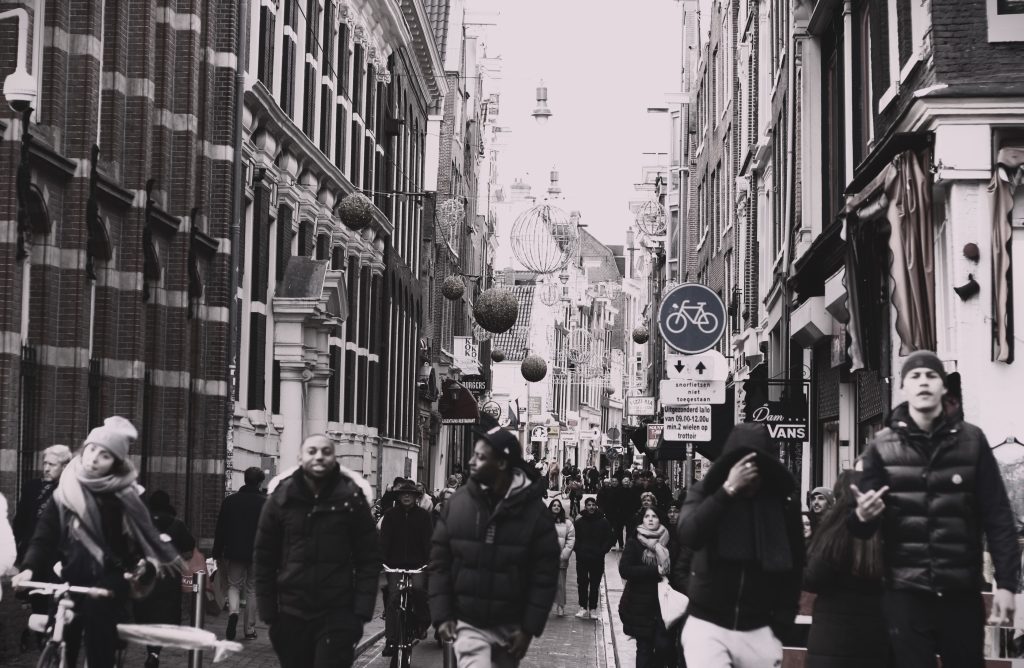
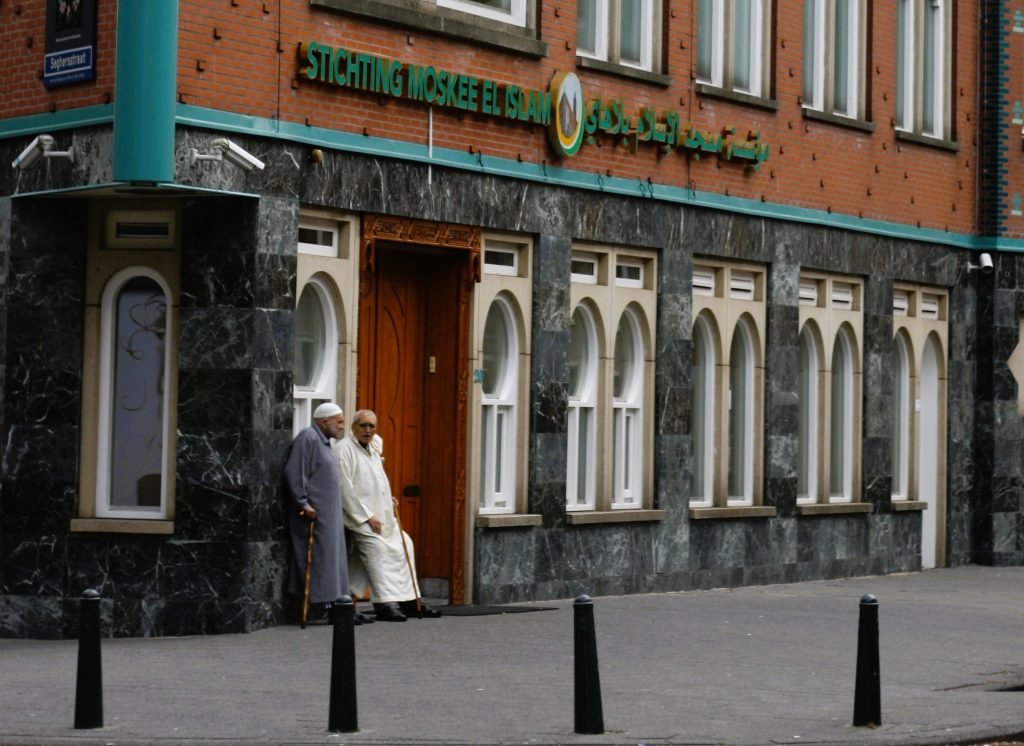

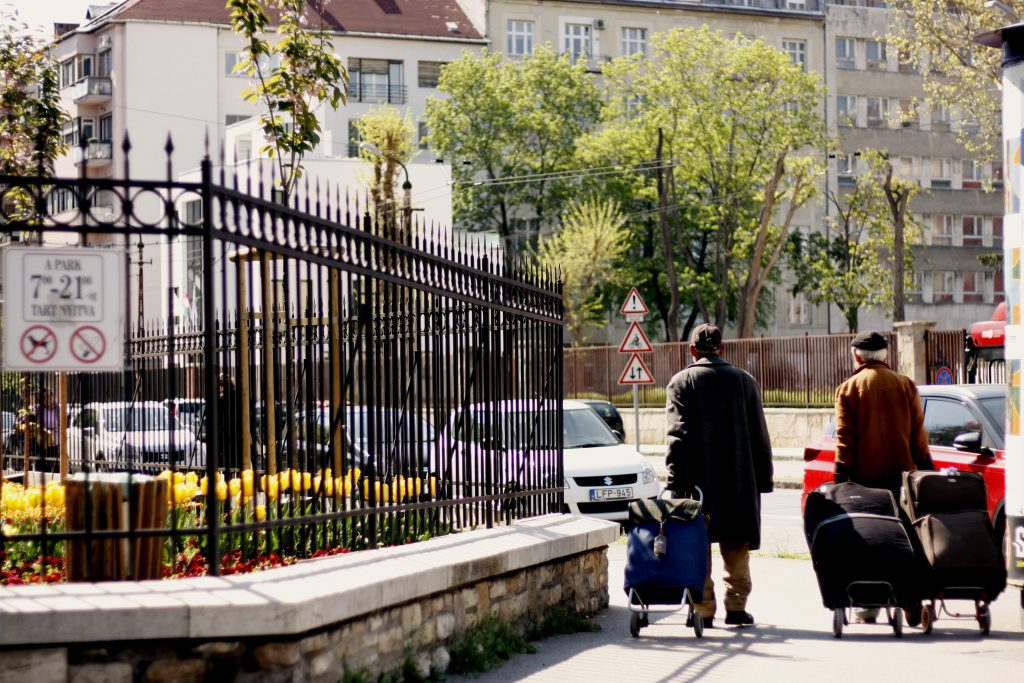
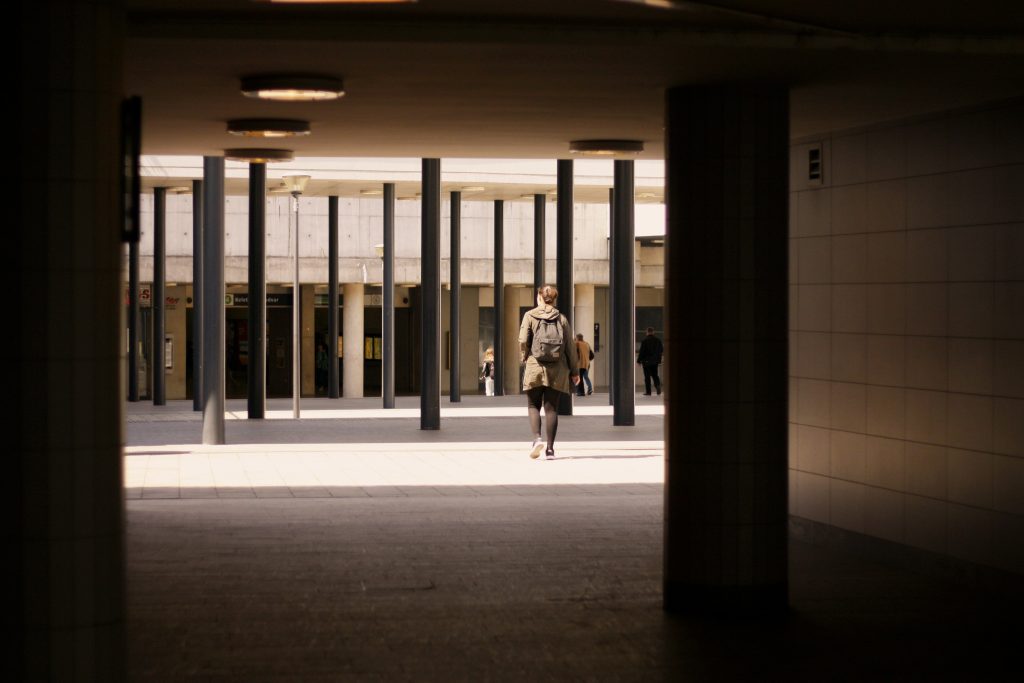
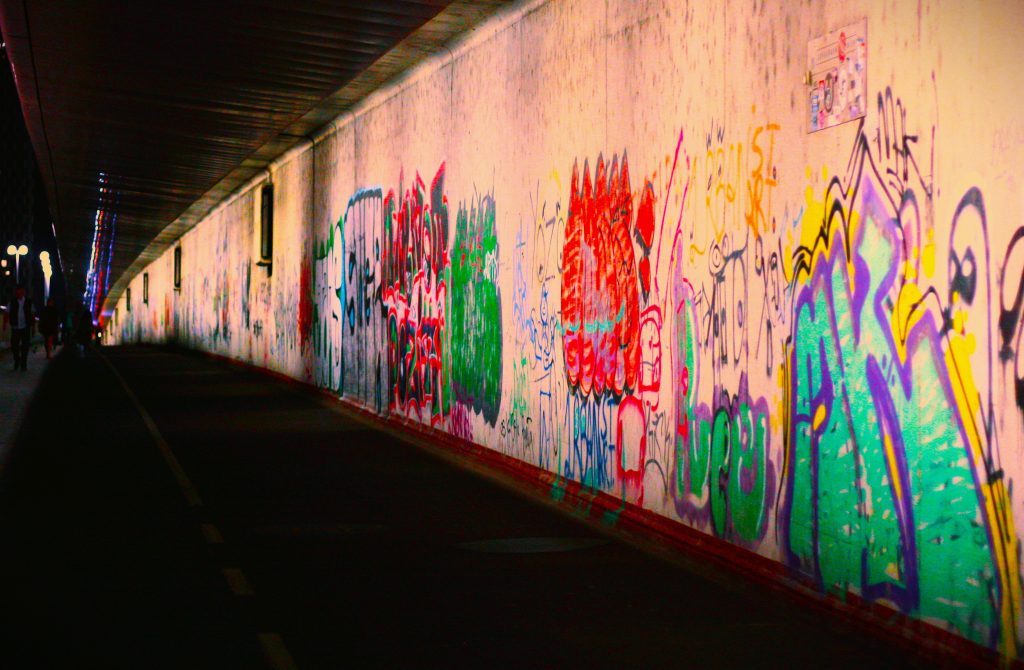








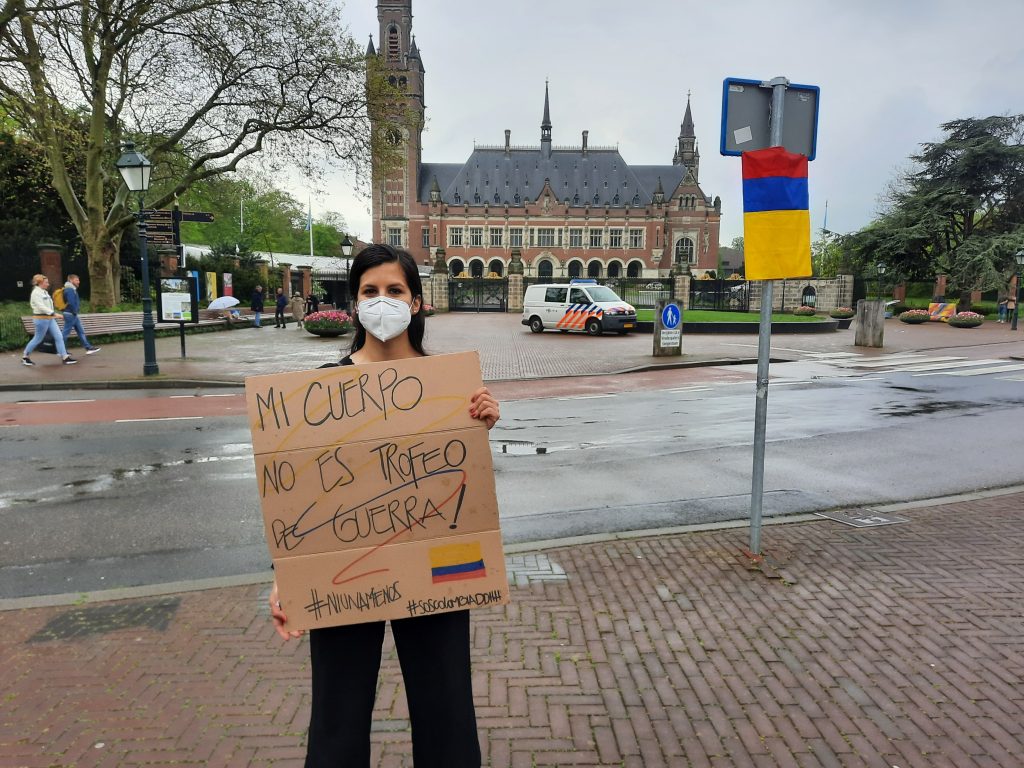
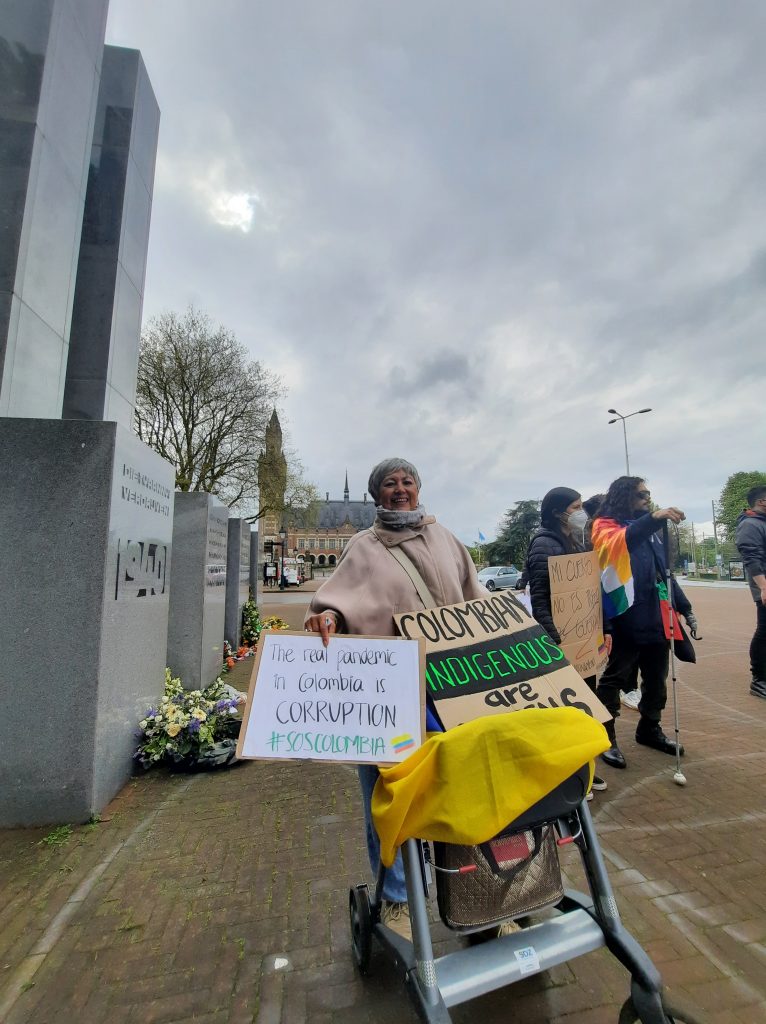
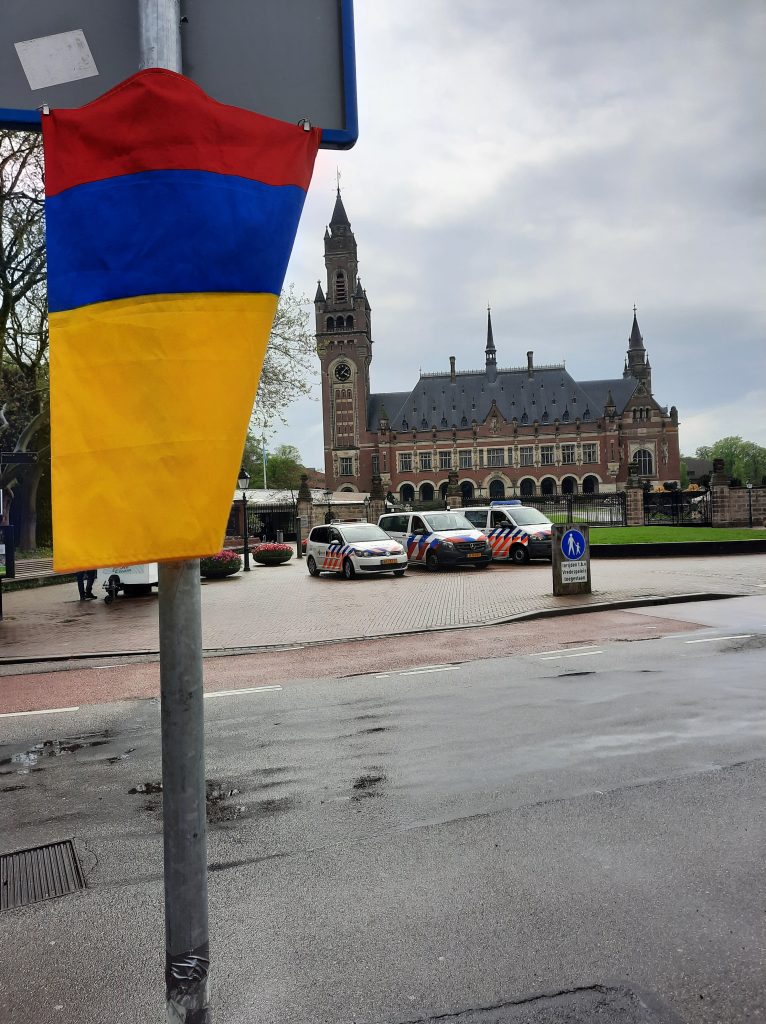
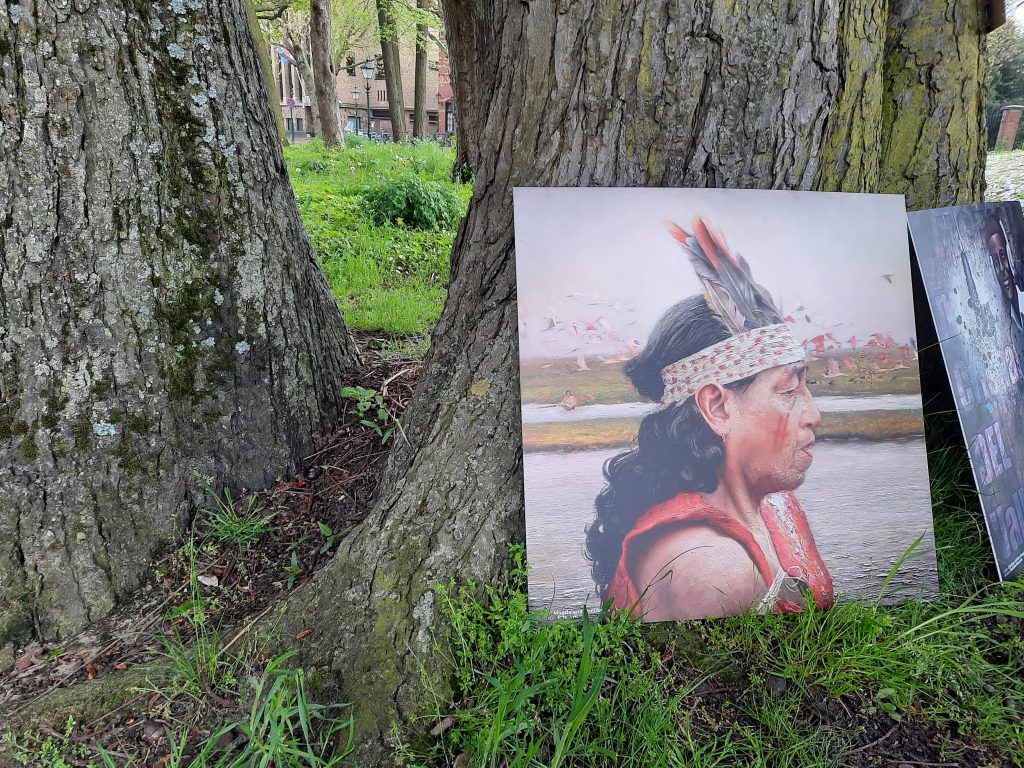
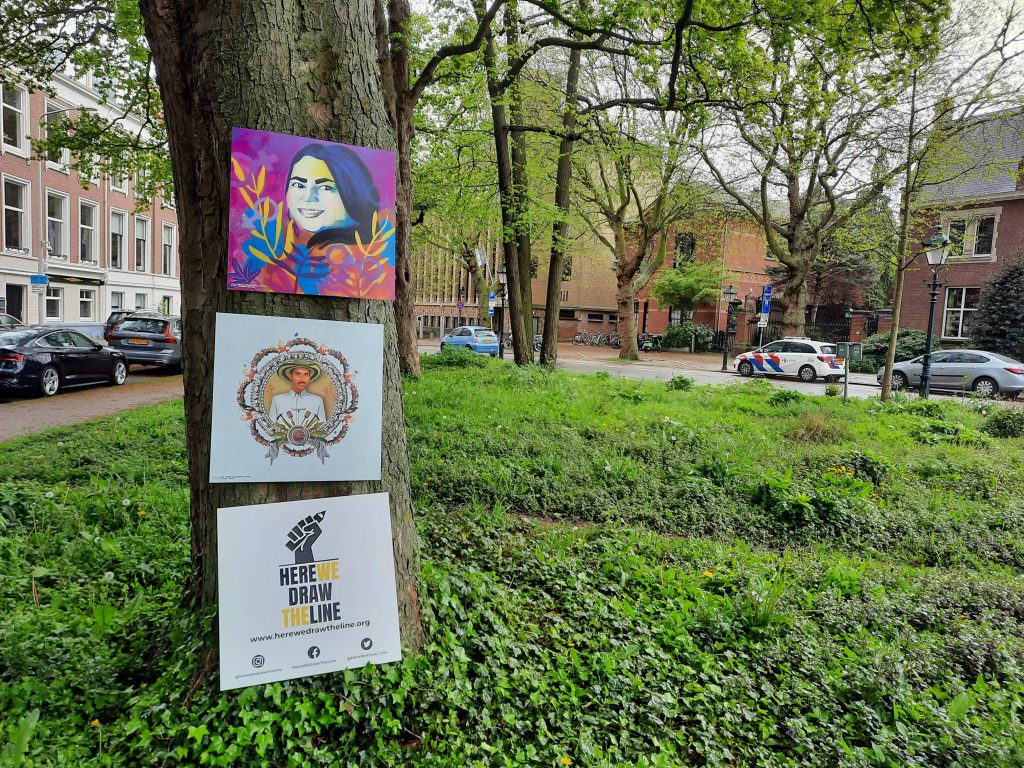
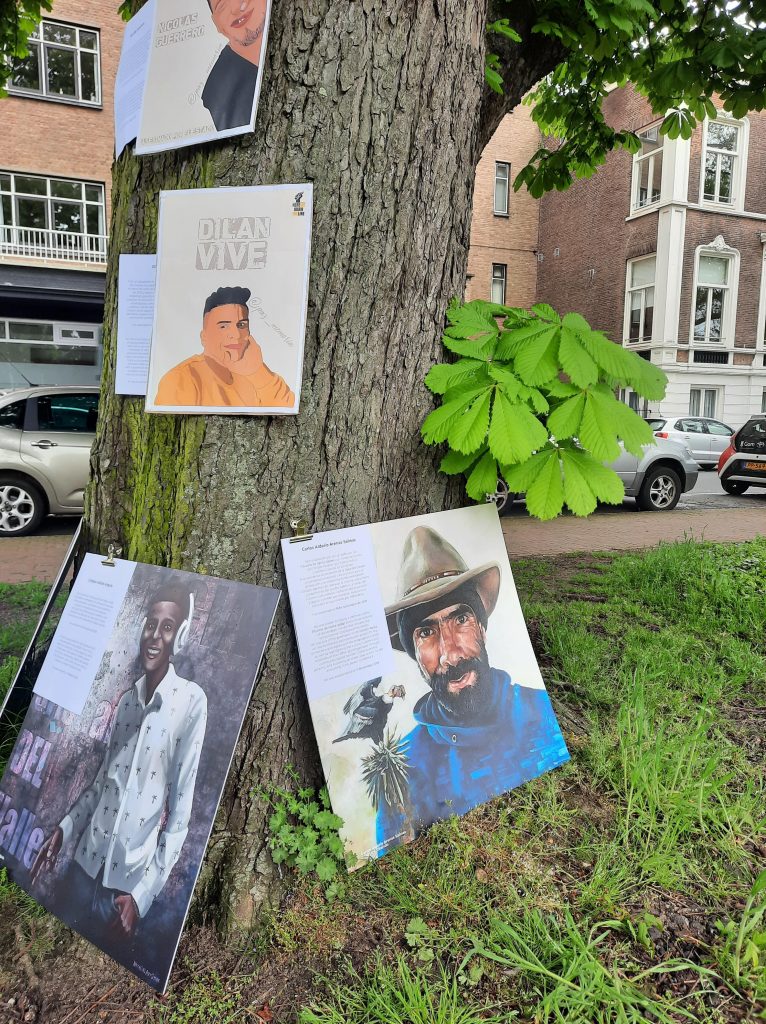
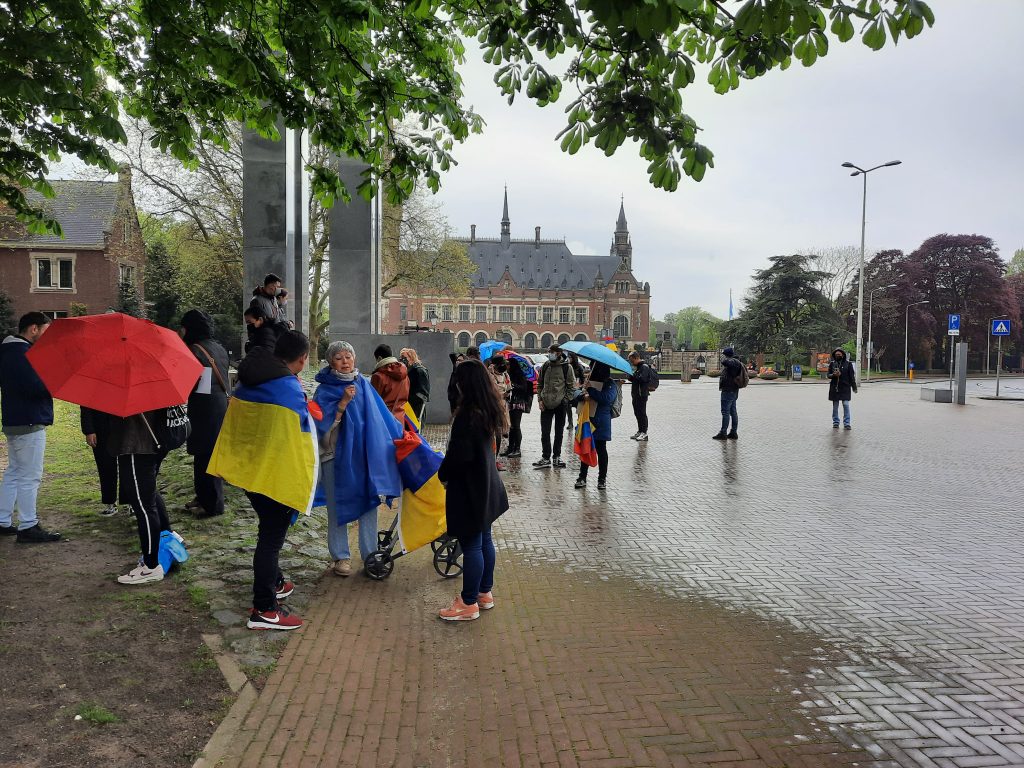
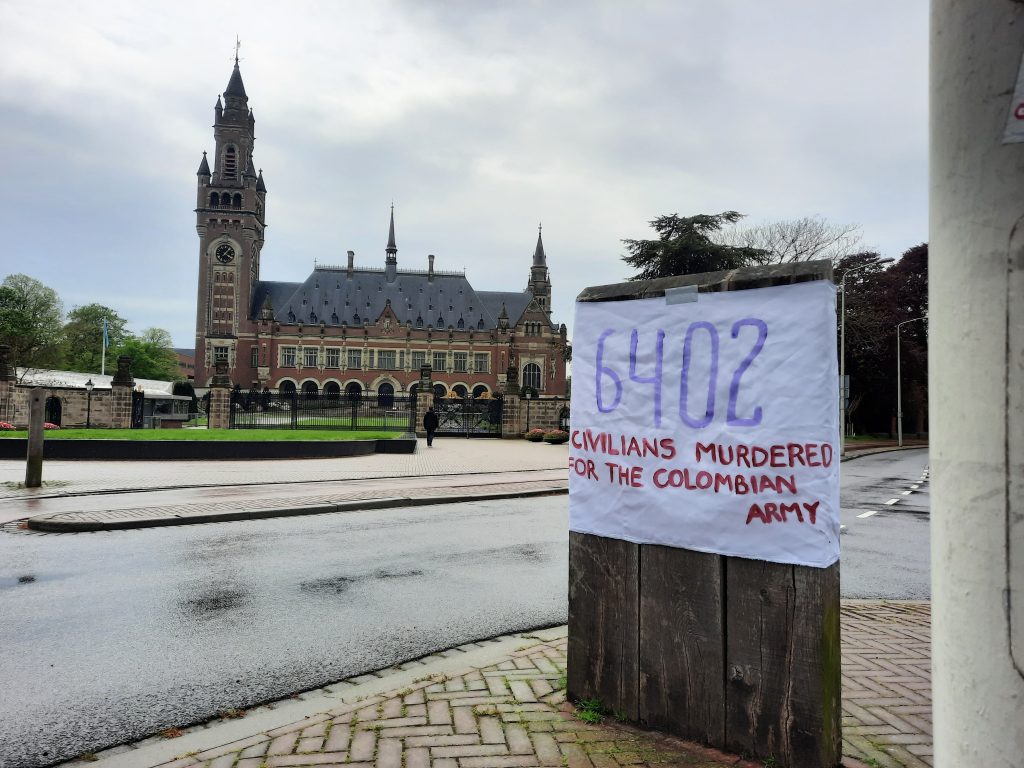
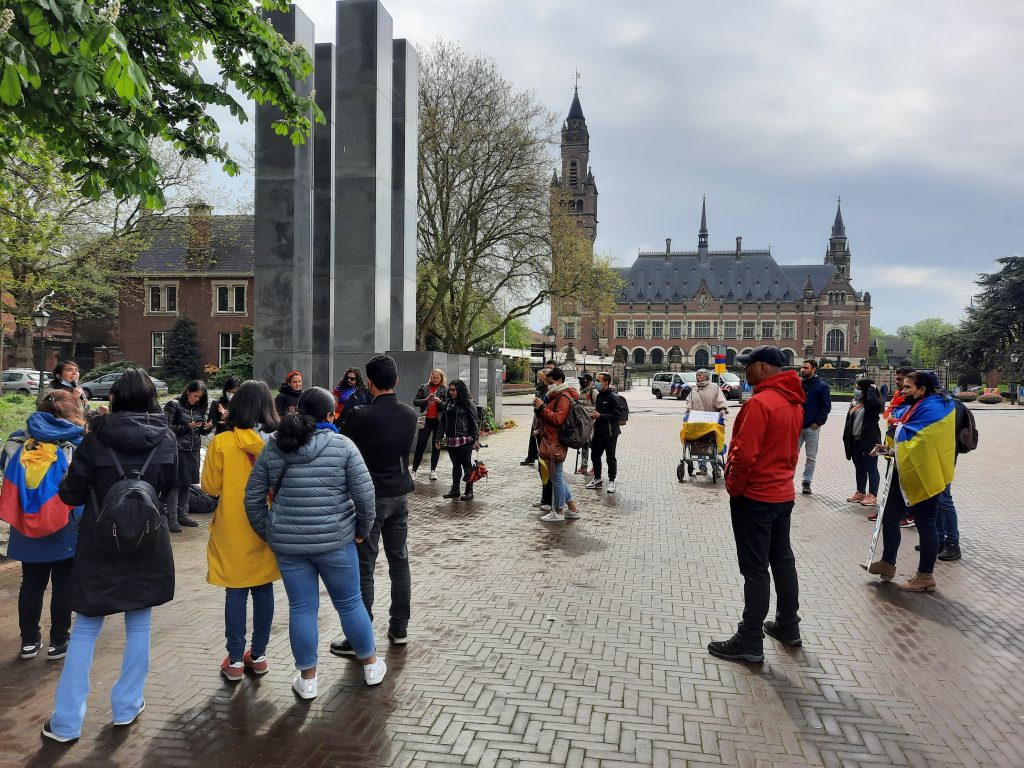
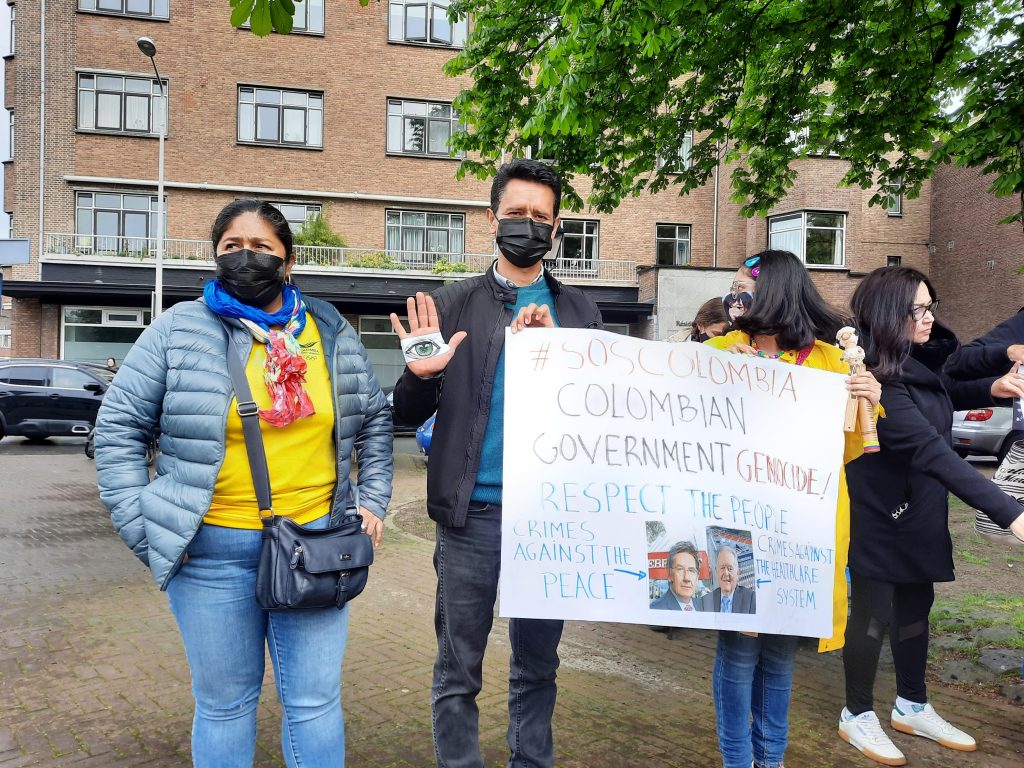

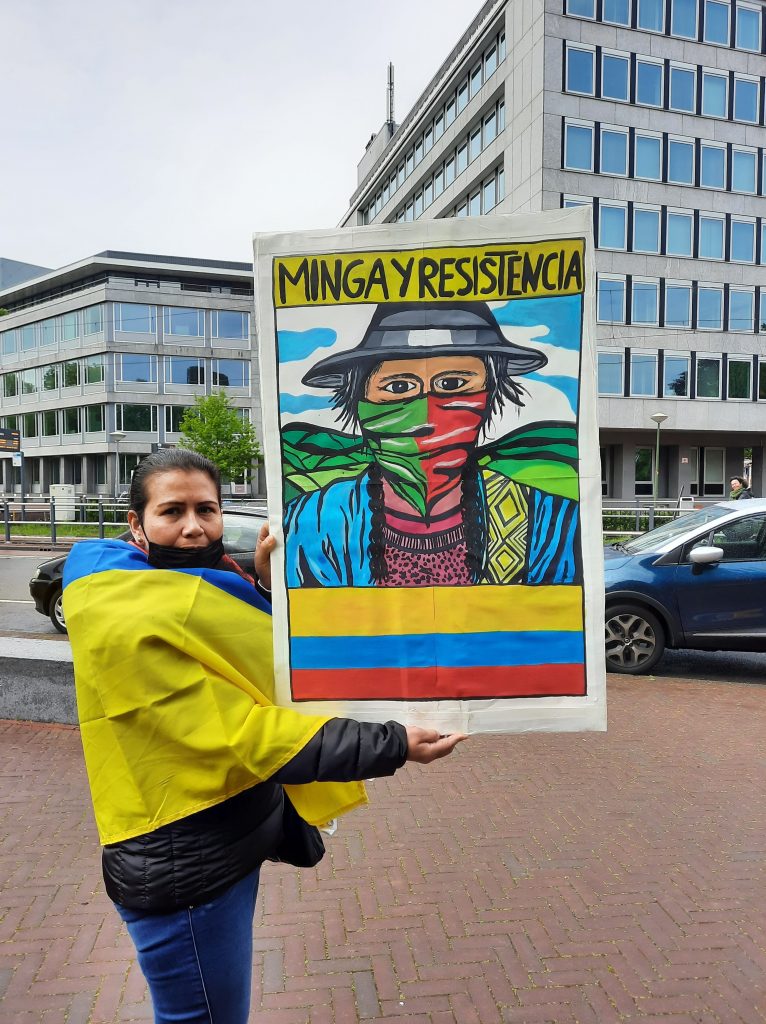
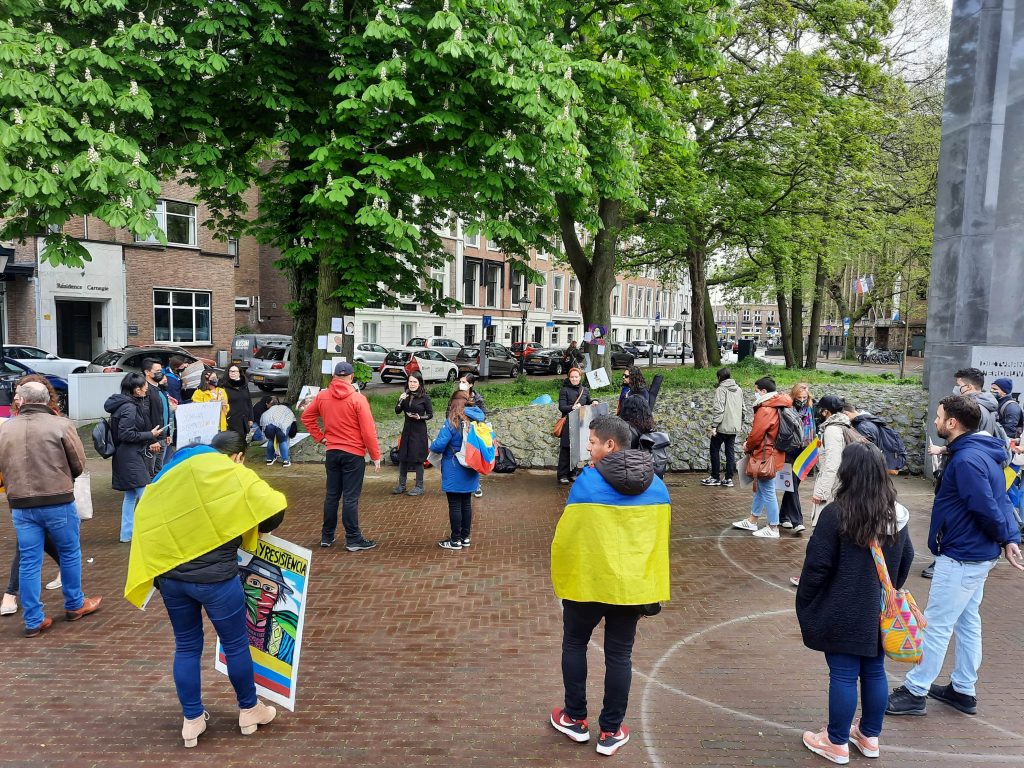
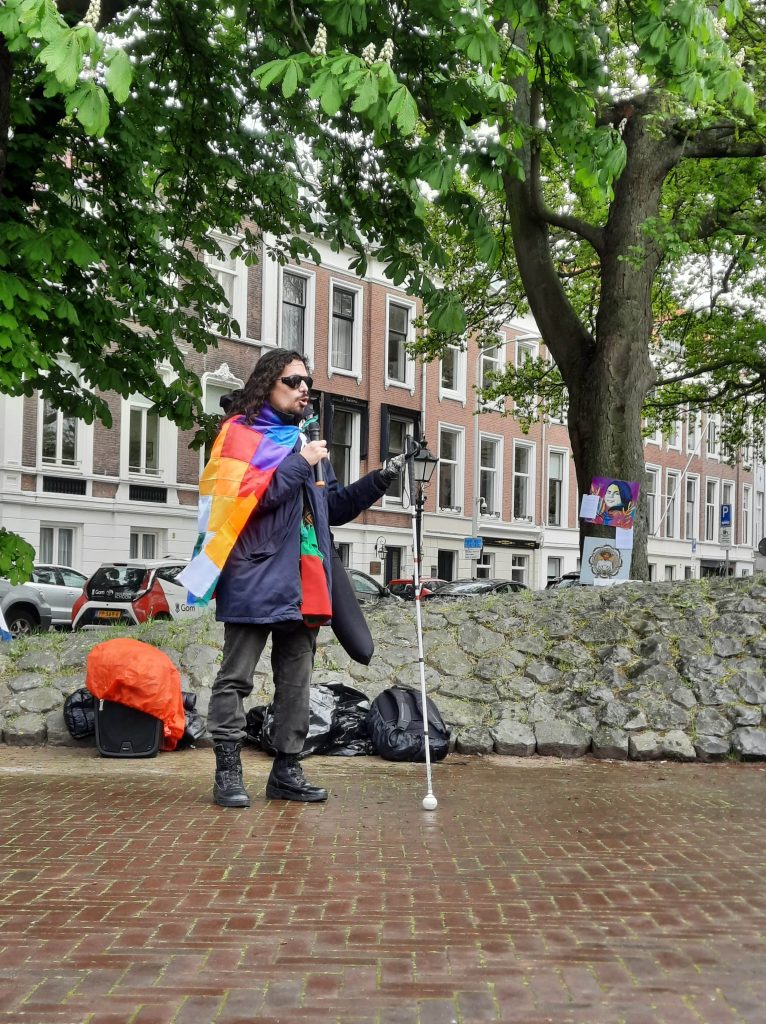
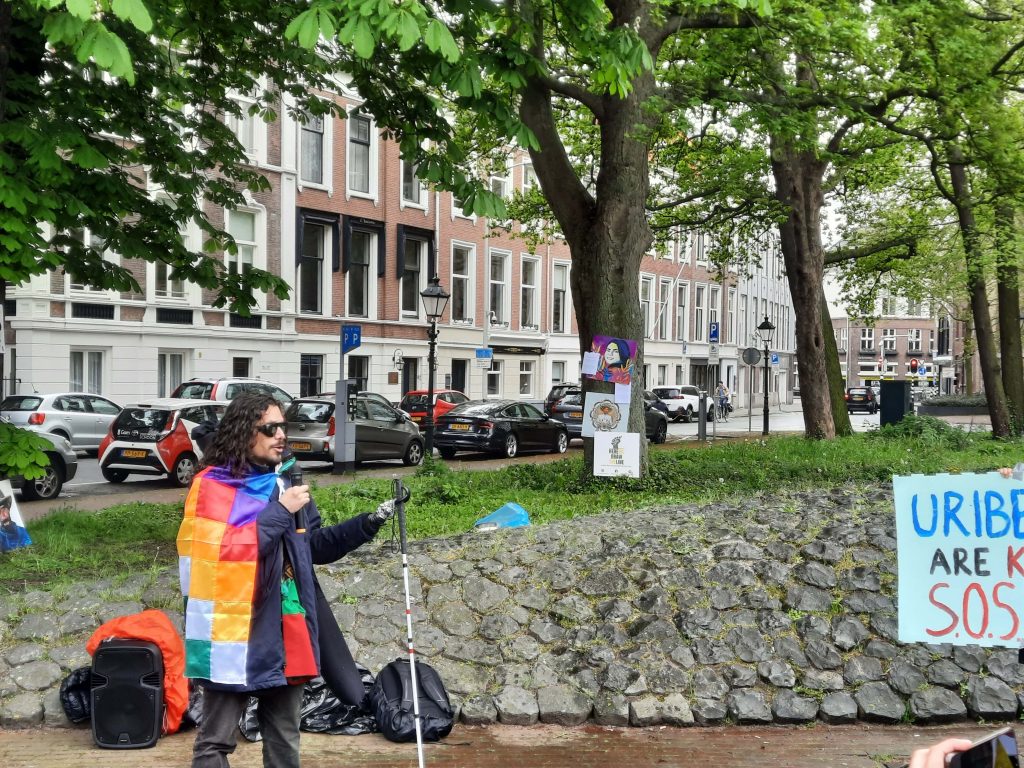
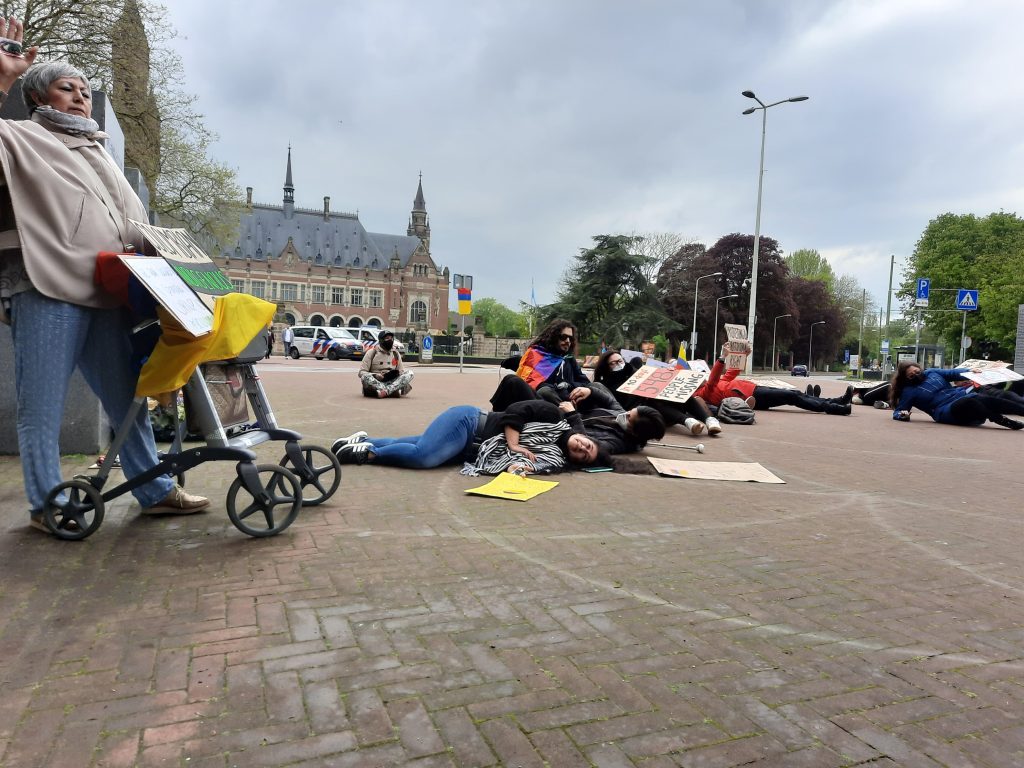
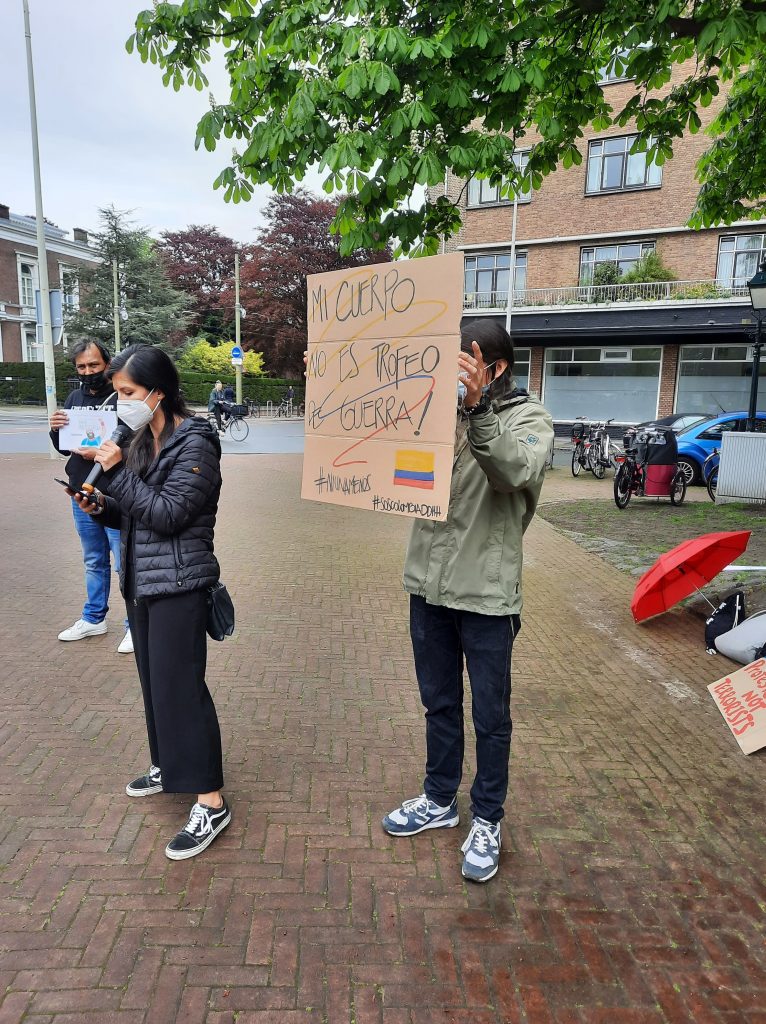
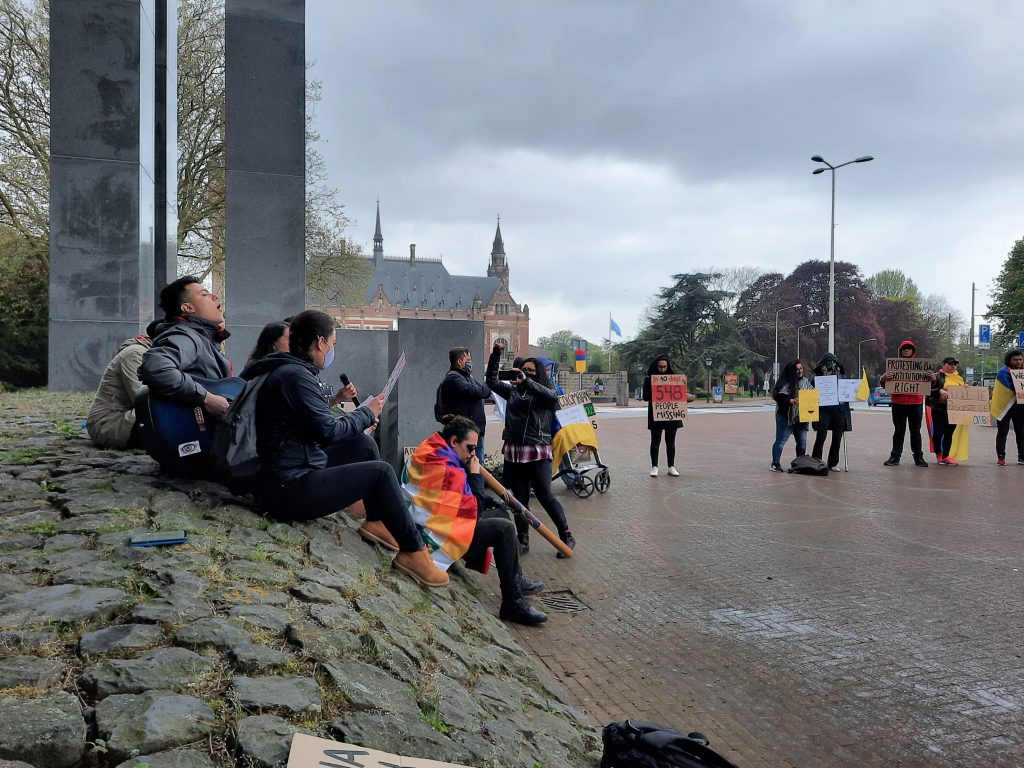
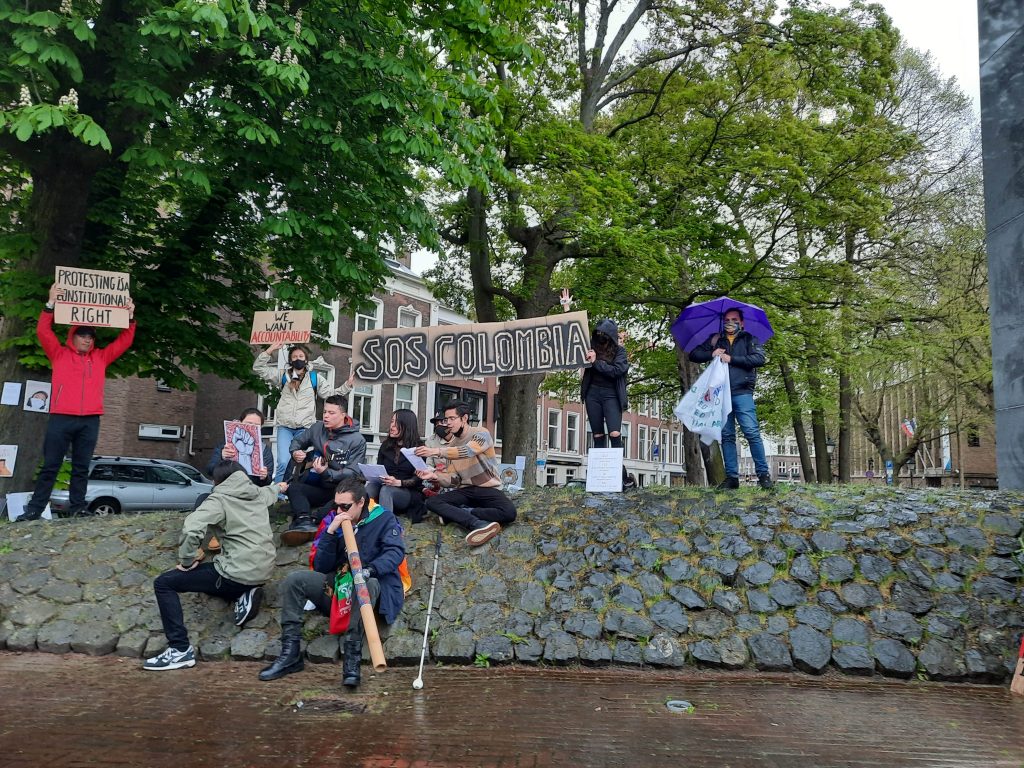
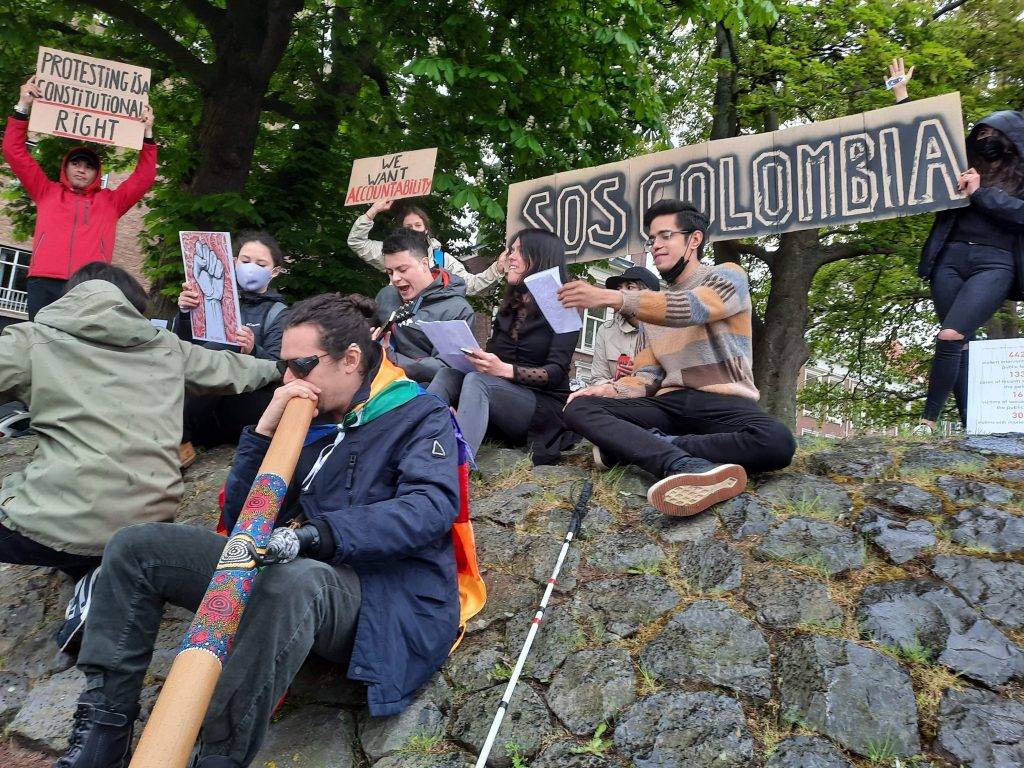
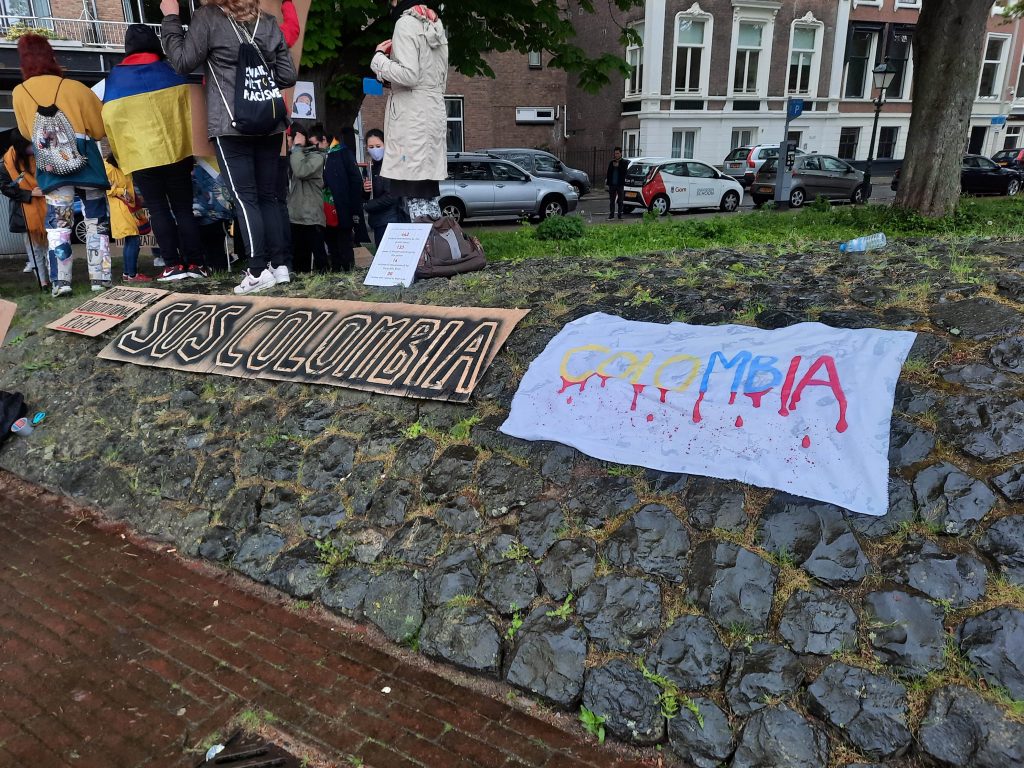
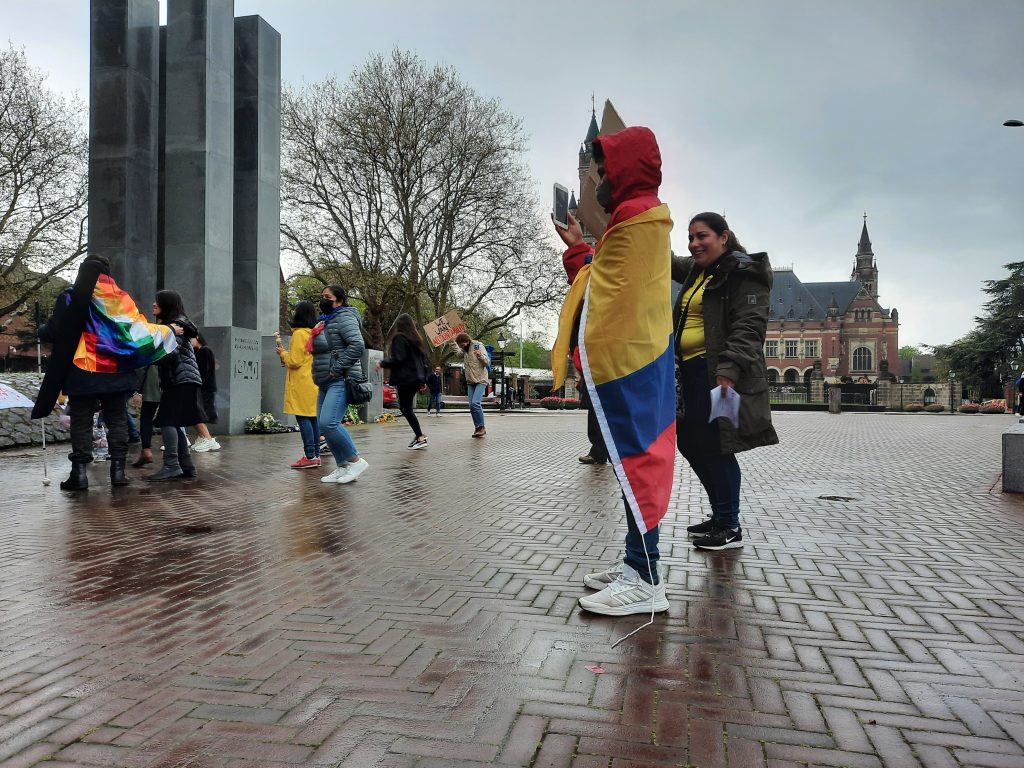
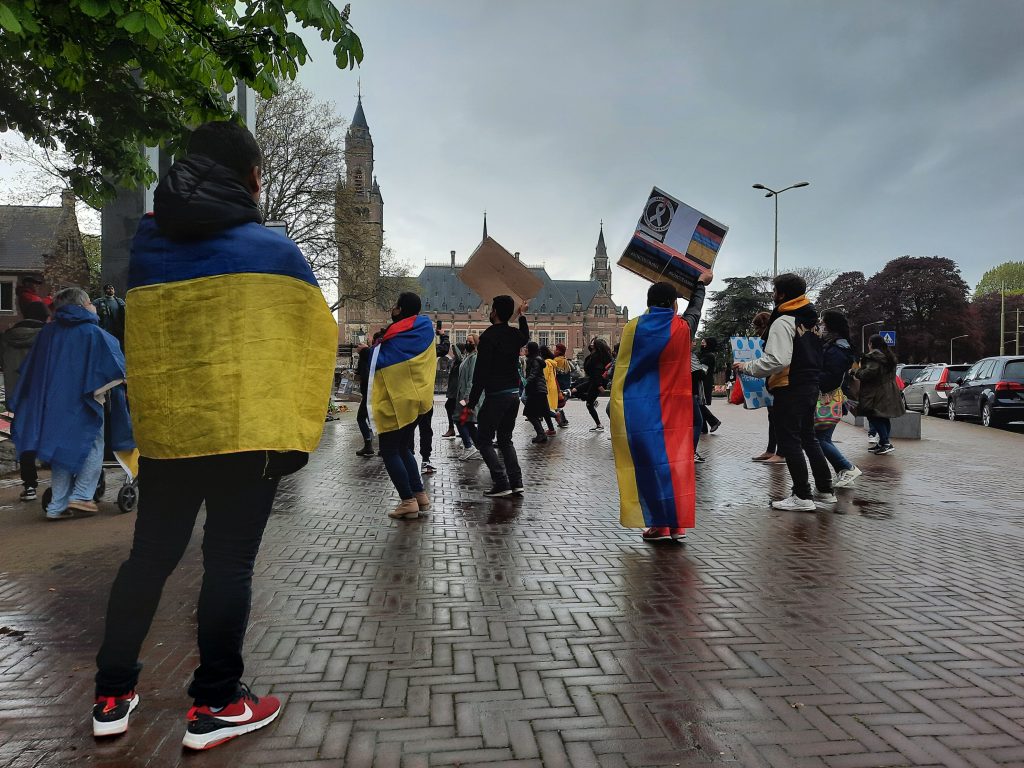
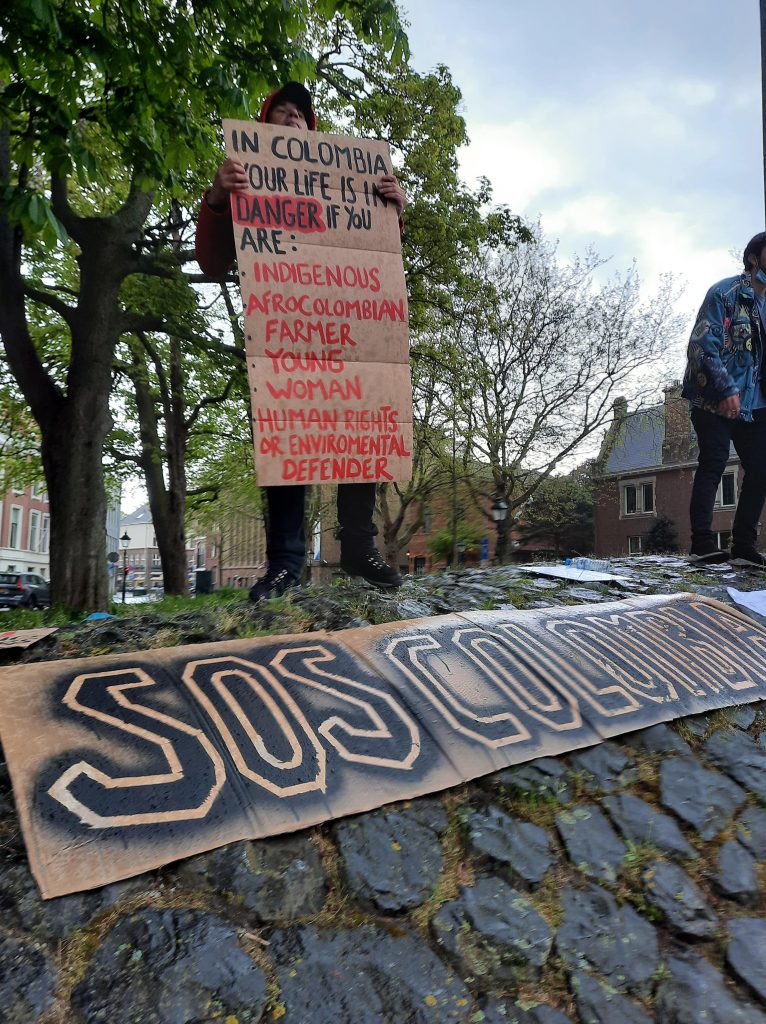
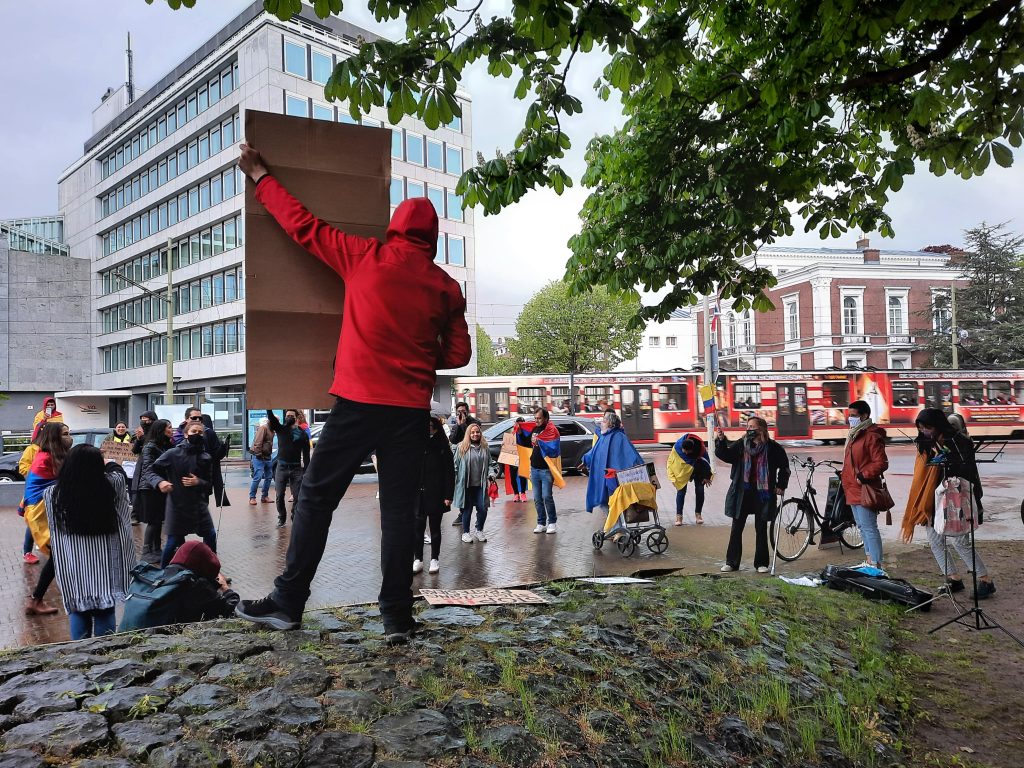
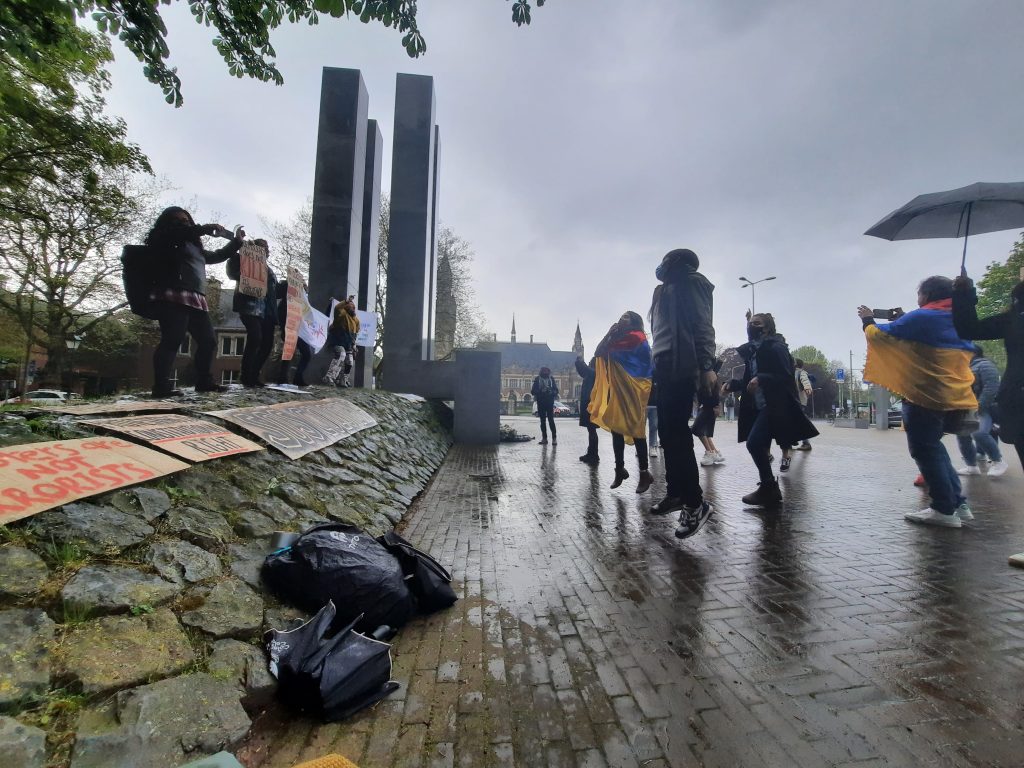
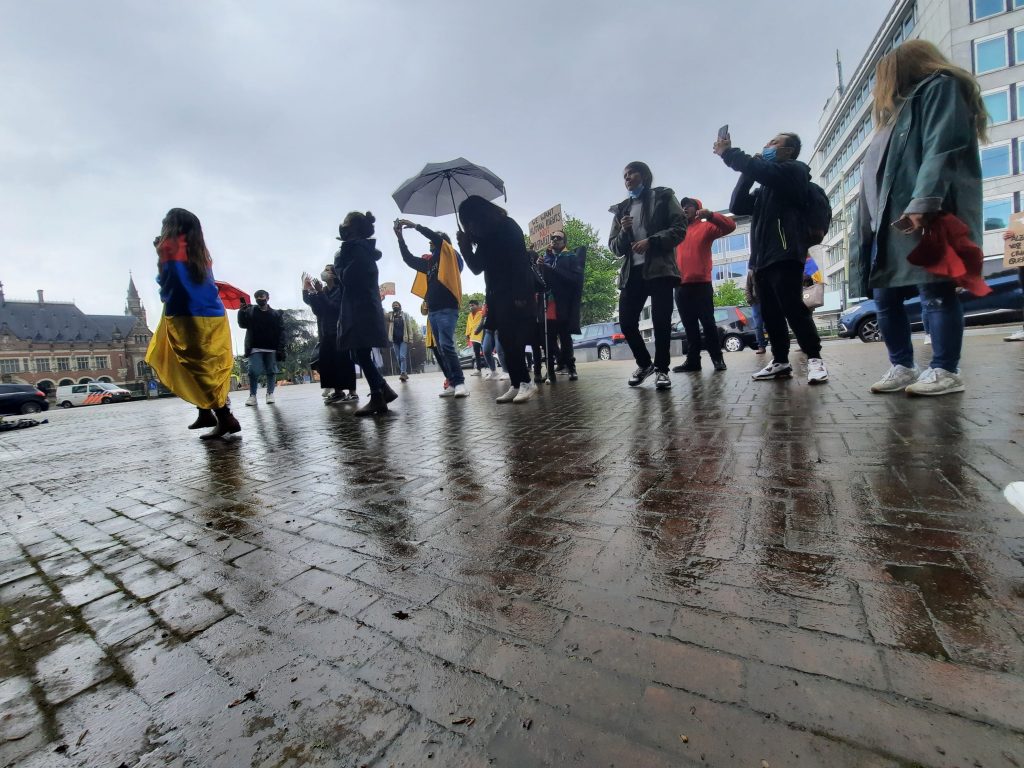
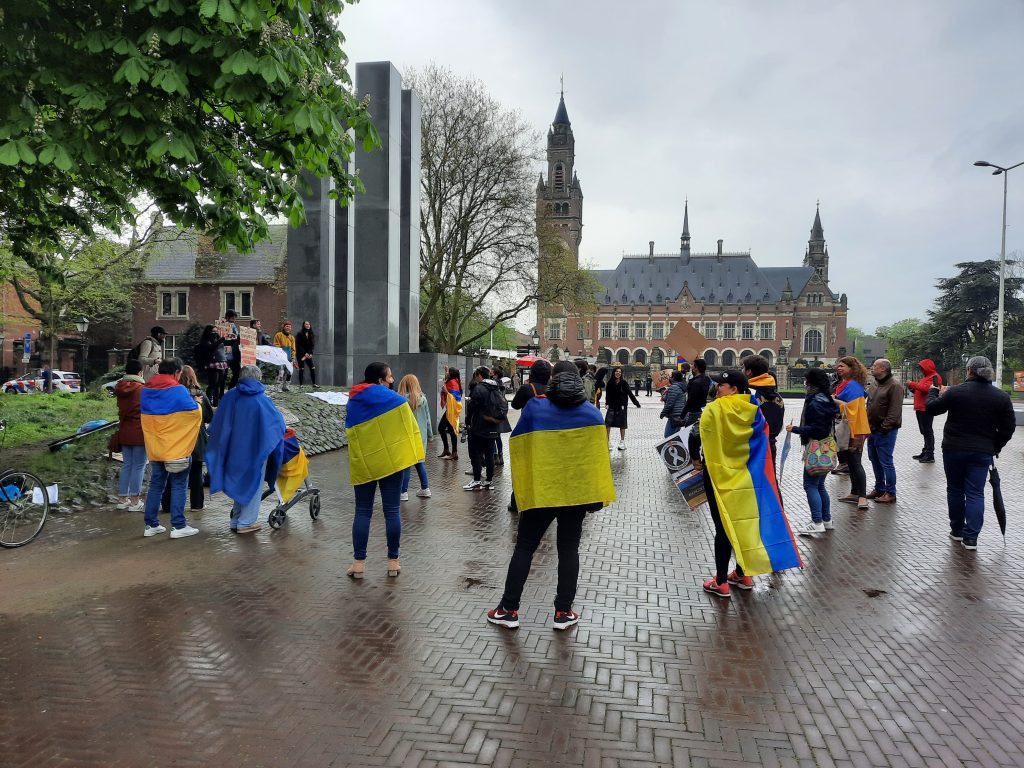
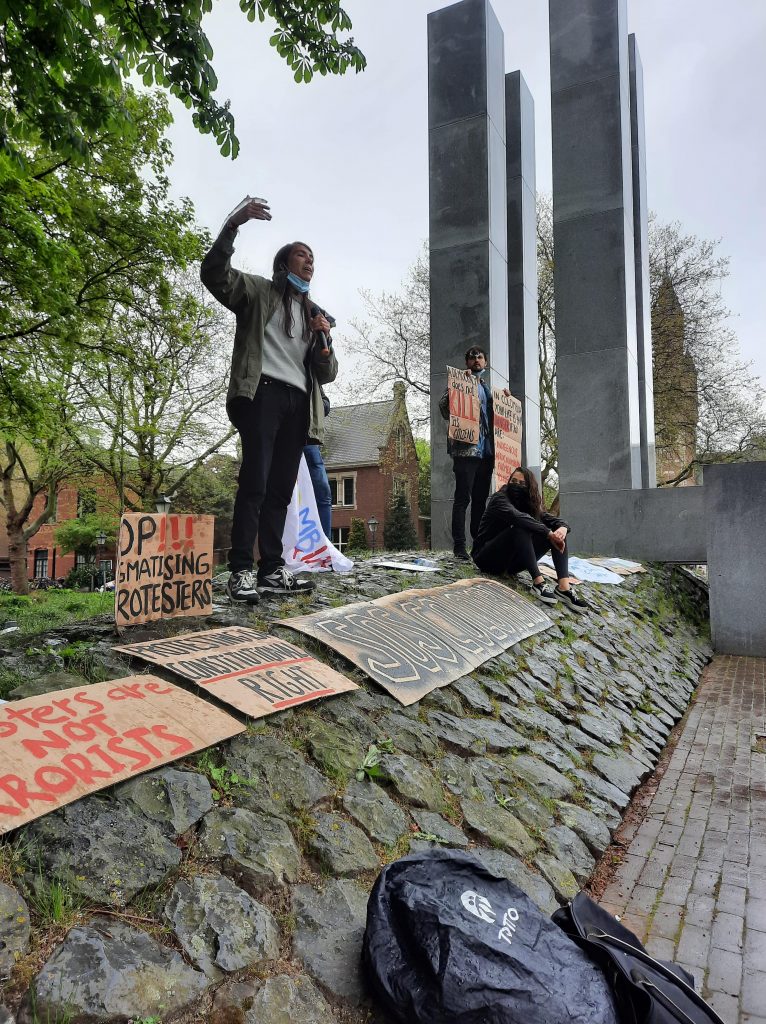
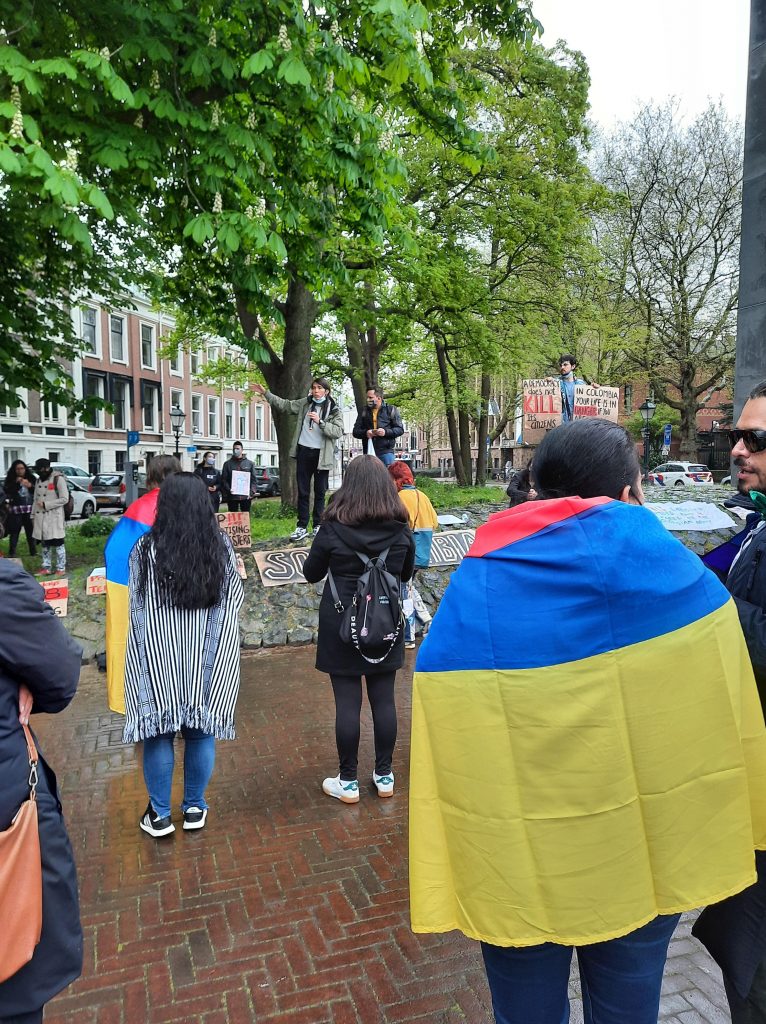
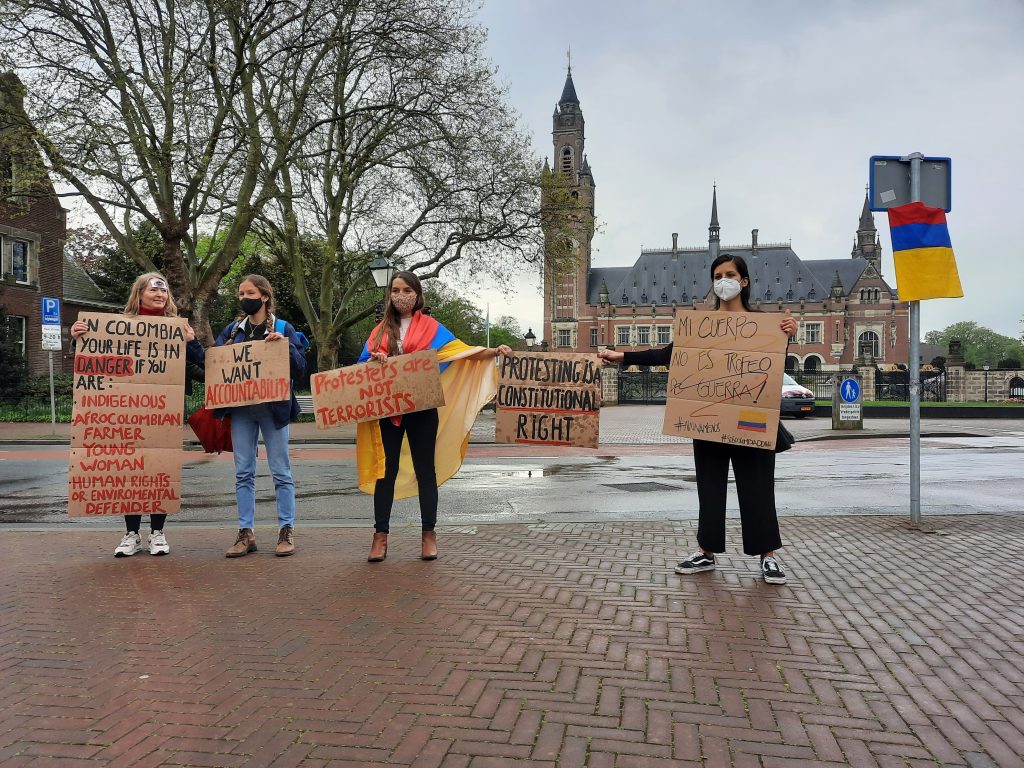
Julián Sarmiento Escobar
Translated by Marianna Soroka
The Hague, 18 April 2021
In Colombia, there are mothers who have been trying to trace their children for more than thirty years. There are also brothers and sisters searching for their lost siblings. These families are suffering a painful separation, overshadowed by good intentions. At the same time, at the other side of the Atlantic, other people are searching for their real identity. They feel different than others and can no longer bear not knowing their true past. All of them share the same DNA and the fact of being victims of a seemingly perfect system created within a seemingly perfect society. Feeling invisible, they keep fighting for their own voice and the truth.
On February 8th 2021, the Dutch government released a document that left the entire country speechless. The Joustra report reveals shocking abuses in the adoption system established between the Netherlands and a number of other countries (Sri Lanka, Indonesia, Brazil, Bangladesh and Colombia). Dutch families had been so determined to adopt children from these places that the officials had turned a blind eye on many illegal practices, which included distancing children from their families in exchange for money or by force, child trafficking, kidnapping and so-called “baby farming” (breeding places). After the release of the report, the Netherlands immediately suspended all adoptions from abroad and the government officials apologized to the victims.
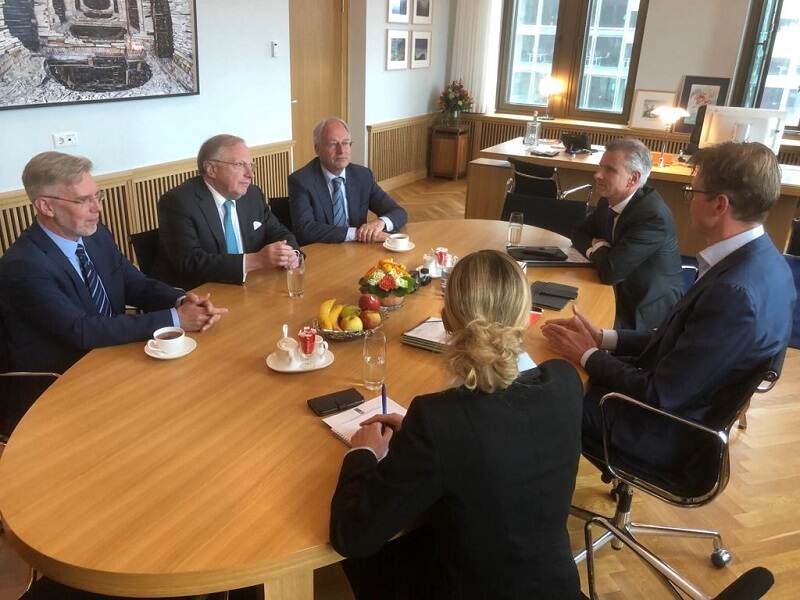
The investigation was initiated by the Dutch Minister of Social Protection in 2019. The committee led by Tjibbe Joustra investigated procedures of international adoption in the Netherlands between 1970s and 1990s..
Nevertheless, complaints concerning foreign adoption cases had been occasionally brought up in the media before. Back in 2012, journalist Manuel Teodoro released a documentary exposing irregularities of the system, in his show Septimo Dia. Almost ten years later, the exact same irregularities were repeated in the report presented in The Hague.
Marcia Engel was one of the persons who participated in the documentary. Today she is among the most important activists fighting for the truth behind foreign adoption practices. She is also a chairman of Plan Angel, a foundation established in the Netherlands in order to help reuniting separated families by providing DNA tests for those searching for their children. Although the report describes many dramatic stories, Marcia is being very optimistic about its outcome: “It feels like a victory! And it’s just the first step towards recognition” – she declares.” We have been working for so many years, trying to make people aware that there is another side to adoption. People are acknowledging now that things went wrong in the past and it is an achievement.“
What is happening on the Colombian side?
Apart from the description of the illegal practices, the Joustra report also focuses on their origin. One of the most important reasons for which international adoption became so common in Colombia is the military conflict that has lasted there for more than fifty years. As a result, many Colombian children became orphans and, according to Unidad para las Víctimas (The Unit for the Victims Assistance and Reparation), about eight million of Colombian citizens were forced to leave their homes and move to other places. This is why possibilities of domestic adoption decreased dramatically.
The authors of the report analyzed the work of Instituto Colombiano de Bienestar Familiar (The Colombian Institute of Family Welfare), the institution responsible for Colombian minors. They observed a slow improvement in information systems, such as public records and databases. At the same time, there was a tendency to alter or create false documents in order to facilitate certain procedures. While reviewing records of the adopted children, the committee discovered that it is impossible to trace their paths. There is a lot of information missing or it seems to have been altered. Even though there are incredibly successful adoption stories, others are full of crime and despair.
In a press conference following the Joustra report, ICBF confirmed that Dutch officials came to Colombia in order to research international adoption cases in the above-mentioned period. The organization defends itself by stating that the Colombian adoption program fulfills all the requirements of international agreements.
Marcia believes that the adoption system prioritizes adoptive parents over adopted children. As the exchange is based mostly on mutual trust between different countries and their institutions, there is also space for falsification and alteration of adoption documents. There are examples of certificates stating that a child was an orphan while they actually had a family willing to take care of them. That is why Marcia claims that the Colombian government is the one responsible for the failed cases.
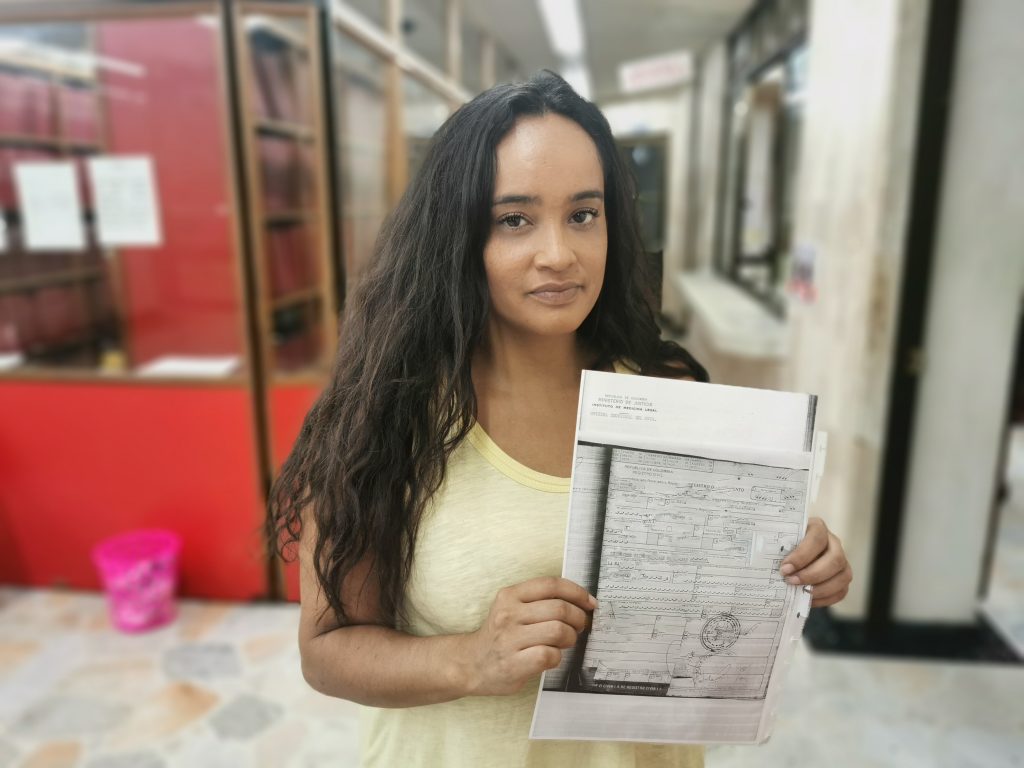
Marcia was born in Bogota and was adopted by a Dutch family. It seemed like she had everything she could ask for, but at home she felt lonely and totally vulnerable. She was sexually abused by her new family members since the age of three. She also spent many years feeling discriminated because of being ethnically different. These experiences have strongly marked her life, but they have not determined it. She eventually managed to find her biological mother, although the process was very long and it demanded a lot of effort and money. She also discovered that her birth certificate used for adoption had been falsified and that both sides of the process had been misled or forced. “I am one of the victims,” tells Marcia. “My mother was forced to sign adoption documents and the record that was sent to my adoptive parents states that I was an orphan. When I found my mother, I discovered another birth certificate with my mother’s name on it. The one that was delivered to my adoptive parents claimed that my biological parents were unknown.“
The acknowledgment
The report focuses on the period between 1967 and 1998. An estimate of 2700 Colombian children per year were given up for foreign adoption between 1984 and 1994, which sums up to about 30000 persons in only ten years. About 5400 of them ended up in the Netherlands.
In the past years, organizations such as La Comisión de Verdad (The Truth Comission) and Centro Nacional de Memoria Histórica (The National Center of Historical Memory) have focused on collecting, publishing and sharing testimonies of victims of the military conflict in Colombia, in order to fully understand its social impact. Stories of the adopted children are expected to be included as well. As the Joustra report claims, many of the minors became orphans due to the war, their parents’ deaths, as well as other reasons. A lot of female Guerilla fighters became pregnant involuntarily and could not or did not want to take care of their children.
The future
Even though the tragic past has overshadowed the lives of the victims, Marcia and her foundation try to concentrate on ways to provide a better future. “We’re not only going to complain that other people don’t do their job. We want to help and prevent, too“- says Marcia about her new project.
This year, Plan Angel is planning to buy a piece of land in Colombia and build a self-sufficient community center for vulnerable single mothers. The idea is to prevent women from giving their children up for adoption by educating them about their rights and providing a support network. Hopefully it will eventually create more growth opportunities for single mothers as well as for their children.
Julian Sarmiento Escobar,
La Haya, 18 de abril 2021
En Colombia, hay madres que llevan más de 30 años buscando a sus hijos e hijas, hermanas buscando a sus hermanos, familias que siguen padeciendo una separación dolorosa y cuyo clamor se ve eclipsado por la buena intención. A su vez, al otro lado del océano atlántico, personas buscan su identidad, se sienten diferentes y saben que no pueden seguir viviendo sin conocer la verdad de un nublado pasado. Tienen en común el ADN y el ser víctimas de un sistema aparentemente perfecto. Sufriendo invisibles, siguen su lucha por una voz y una verdad.
El pasado 8 de febrero de 2021, el gobierno de los Países Bajos presentó un informe que sacudió al país. En el informe conocido como “Reporte Joustra”, se sacan a la luz horrorosos crímenes en el sistema de adopción internacional entre este país europeo y varios países alrededor del mundo (Sri Lanka, Indonesia, Brasil, Bangladesh y Colombia).
Existió tal demanda de menores en adopción por parte de familias holandesas, que se recurrió a serios crímenes para satisfacer ese mercado. Los delitos incluyen: distanciamiento de niños y niñas por pago o bajo coacción, trata de menores, robo, secuestro y “Baby farming” (Cría de niños y niñas). En los Países Bajos, el reporte produjo la suspensión inmediata de todas las adopciones internacionales y el estado ha salido a pedir disculpas oficiales a las víctimas.

La investigación fue realizada por un comité creado por el ministerio de protección legal holandés en 2019. Está encabezado por Tjibbe Joustra y su tarea consistió en investigar los procesos y procedimientos en la adopción internacional en los Países Bajos durante las décadas de los 70, 80 y 90.
Las denuncias sobre problemas en la adopción internacional ya habían aparecido en los medios esporádicamente. En el año 2012 por ejemplo, el periodista Manuel Teodoro en su programa Séptimo Día, presentó un documental en donde se exponían las situaciones irregulares en el sistema. Casi 10 años después, estas denuncias han sido corroboradas por las conclusiones del informe presentado en La Haya.
Marcia Engel fue una de las personas que participó en el programa de Teodoro. Hoy en día es una de las activistas más importantes en la lucha por el reconocimiento y la conciencia sobre el lado oscuro de la adopción internacional. A su vez, Marcia es la directora de Plan Angel, una fundación con sede en los Países Bajos, cuya misión consiste en reunir familias colombianas y sus familiares adoptados en el exterior, al facilitar acceso a pruebas de ADN. Aunque el reporte describe una realidad triste y dolorosa, para Marcia este representa también un gran logro: “¡Se siente como una Victoria! Es solo el primer paso hacia el reconocimiento” manifestó Marcia. “Hemos trabajado por muchos años, tratando de mostrarle a la gente el otro lado de la adopción. Y es una victoria que las personas reconozcan ahora que muchas cosas estuvieron mal hechas en el pasado”.
¿Qué sucede al otro lado?
Aparte de los delitos ya mencionados, se exponen también en este reporte, algunas razones dentro del contexto colombiano por las cuales la adopción internacional se transformó en una práctica común. Una de las principales, es el conflicto armado interno que lleva más de cinco décadas. Muchos niños y niñas han quedado huérfanos por la violencia. Esa misma violencia que según las cifras de la Unidad de Victimas en Colombia, ha hecho que alrededor de 8 millones de colombianos tengan que desplazarse y dejar sus hogares. Debido a esto, el ambiente para la adopción domestica (es decir, adopción en el país de origen), es muy estéril y la adopción internacional se presentaba como la única opción.
En el reporte se describe detalladamente el funcionamiento y las falencias de la institución responsable de los menores en Colombia, el Instituto colombiano de bienestar familiar (ICBF). Se plantea una mejora muy lenta en los sistemas de información, tales como registros civiles y bases de datos. Al mismo tiempo, una tendencia a la alteración o creación de documentos falsos para facilitar ciertos tramites. Al revisar expedientes existentes en Colombia, la comisión encontró que en algunos casos es imposible seguir el rastro en los documentos de las personas adoptadas. Simplemente no hay información o fue alterada; así como existen historias increíbles de adopciones exitosas, hay historias de horror, crimen y desespero.
Por su parte, El ICBF en un comunicado de prensa presentado a la opinión pública acerca del Reporte Joustra, confirmó que investigadores holandeses estuvieron en Colombia, indagando en los distintos procesos y mecanismos de la adopción internacional en ese periodo (1970-1999). La institución se defiende exponiendo que: “El Programa de Adopción de Colombia responde a uno de los entornos jurídicos más reglados de cualquier servicio social en el país, pues se enmarca en cuatro convenios internacionales, la Constitución Política, el Código de la Infancia y la Adolescencia, y un lineamiento técnico que es el reflejo de todos estos mandatos”.
Desde su experiencia y conocimiento, Marcia dice que el sistema tenía como prioridad a los padres adoptivos y no a los niños o niñas involucrados, ya que el sistema se basa en la confianza entre países y organizaciones. Esta confianza dio cabida a falsificaciones y alteraciones en documentos con el fin de dar la impresión de que se trataba de menores huérfanos, mientras que en muchos casos los menores tenían familias con la voluntad y el deseo de cuidar de ellos. Así que para Marcia, es el gobierno colombiano el que ha tenido y tiene toda la responsabilidad.

Marcia nació en Bogotá y fue adoptada por una familia holandesa. Tenía aparentemente todo, pero en la intimidad del hogar, estaba sola y totalmente vulnerable. En esa casa perfecta, sufrió abusos sexuales desde los tres años por parte de familiares. Y pasó mucho tiempo siendo discriminada por tener un color de piel y unos rasgos diferentes. Esto obviamente marcó su vida, pero no la detuvo. Después de mucho esfuerzo, un proceso largo y una suma considerable de dinero, logró dar con su madre y su familia en Colombia. En la misma búsqueda encontró que el registro de nacimiento utilizado para su adopción había sido falsificado y que las personas involucradas en proceso habían sido engañadas o forzadas.
“Yo soy una de las víctimas”, cuenta Marcia, “soy una víctima porque mi madre fue forzada a firmar mi adopción y en el expediente que le entregaron a mis padres adoptivos decía que yo era huérfana. Cuando encontré a mi madre, descubrí que existía otro registro de nacimiento en donde sí aparecía el nombre de mi madre, mientras que en el que recibieron mis padres adoptivos solo decía: padres desconocidos.”
El reconocimiento
El informe se concentra exactamente en el periodo entre 1967 y 1998. En Colombia, un promedio de 2.700 niños y niñas por año fueron dados en adopción internacional entre 1984 y 1994. Esto quiere decir que en solo estos 10 años (de los 31 años estudiados), alrededor de 30.000 niños y niñas colombianas fueron dados en adopción internacional. De esta cifra, cerca de 5.400 fueron adoptados por hogares holandeses.
En los últimos años, instituciones como La Comisión de la verdad y el Centro de memoria histórica, han concentrado esfuerzos en escuchar y visibilizar los relatos y perspectivas de las víctimas en el conflicto armado, con el fin de generar informes finales sobre lo sucedido. Se espera que los relatos e historias de las personas adoptadas sean incluidos en este informe. Como lo dice el reporte Joustra, muchos menores quedaron huérfanos por la guerra, ya sea por la muerte de sus padres o por otras causas relacionadas. Por ejemplo, muchas mujeres combatientes de las guerrillas quedaban embarazadas involuntariamente y no podían o querían cuidar de sus hijos e hijas.
El futuro
Aunque el pasado es trágico y sombrío para las víctimas de estos crímenes, Marcia y su fundación piensan en el camino a un mejor futuro. “No queremos solamente quejarnos y exponer a la gente que no hace su trabajo. Nosotros queremos ayudar y eso es con prevención” dice Marcia al hablar de su nuevo proyecto.
La fundación Plan Angel planea este mismo año comprar un terreno en Colombia. Allí establecerá un centro comunitario autosuficiente para madres cabeza de familia. La idea es prevenir que madres vulnerables tengan que dar sus hijos en adopción por no tener una red de apoyo o por desconocer sus derechos. De esta manera se les pueden dar oportunidades a las madres de desarrollarse junto a sus hijos e hijas, aun cuando su contexto familiar o social las deje desprotegidas.
Este podcast consiste de una serie de entrevistas y conversaciones con personas sudamericanas. La idea es reconocernos en nuestras diferencias y similitudes como habitantes de este continente. ¿Que tal si nos contamos nuestras historias y así no tenemos que esperar a que la política o la economía nos una? Aunque hemos nacido todos en republicas distintas, tenemos muchas cosas en común que nos unen.
En esta ocasión hablamos con una compatriota colombiana, psicóloga y una luchadora. Tais nos cuenta su historia y charlamos acerca de la “latinoamericanidad”.
Bienvenidos a esta serie de entrevistas y conversaciones con personas sudamericanas. La idea consiste en reconocernos en nuestras diferencias y similitudes como habitantes de este continente. ¿Que tal si nos contamos nuestras historias y así no tenemos que esperar a que la política o la economía nos una?
Aunque hemos nacido todos en republicas distintas, tenemos muchas cosas en común que nos unen.
El primero, es un amigo, hermano y colega. Ignacio Santoro de Argentina, nos cuenta su historia y charlamos acerca de la “latinoamericanidad”.
In the path of self-development, we are trying to move constantly forward. Sometimes we try to push so hard forward that we get disconnected from the origin of our desires. Just the word “progress” implies a forward movement. Nevertheless, is there a way of progression in another direction? Can we progress backwards?
Last Monday I was doing some “Julian Sarmiento” search in YouTube (Yes, it’s nice to google or search yourself in YouTube), and I came across a relatively old But What About video. It was the live version of Cheating, Lying, Stealing by David Lang (see the video above). We did this performance around 2016. The same year we won the Grote Kamermusiekprijs in Rotterdam, performing the same piece. The big bang of BWA so to speak.
I decided to watch the video because I was curious about how we were sounding then. At the beginning, I realized how different we looked. How young and skinny some of us were and how different our hair looks (I’m speaking about me, not you Vincent). However, slowly I started to reflect in how we were different inside. We were also young in mind. Young in the romantic sense: believing everything was possible and how with hard work and discipline we will reach the Olympus. Also young from an artistic perspective: exploring every corner of conceptual possibility and allowing ourselves to dream of huge endeavors.
The music also sounded like this. Energetic, full of conviction and at the same time following the steps of our heroes. I can see, already at this point, that we wanted to be a different ensemble. Unique. The musical quality is there obviously. However, what brings out this little smile on my face is hearing and seeing how convinced we were that we were doing the right thing.
That brings me back to the question I stated before. Can we progress backwards? The obvious answer is no. Time is a one directional dimension. However, those of us with some years, scars and battles in our backs, we can all recognize how often evolution occurs tied to a re-connection with our identity. Like a satellite that advances in an elliptical shape, our progress continues orbiting around our most deeply rooted characteristics.
With BWA we will continue to move forward, as we have been doing since then. Like Confucius said: “Study the past if you would divine the future”. Every now and then, it is a positive journey to look back and reconnect with those energetic and powerful dreams and thoughts. Those drivers that fill your heart and muscles with very worm blood and your mind with pointy questions that need to be answered.
P. S: Many thanks to Mariana Soroka, Aurore Mountaulieu and Antonio Pierna for being part of that memory. I hope to meet you all at some point again.
Since not so long ago, I started to study and do some Journalism. I am mostly focused in communicating stories from certain communities and bring it out to others. In this way, we can all understand a little bit about the different perspectives out there. For that reason this series of videos are called “It’s About All of Us”. Please put your thoughts or suggestions in the comments!! I will read them and answer!! Thanks and have a great week!
Welcome to my Blog! Here you can find all my journalistic work. I will keep updating it regularly!